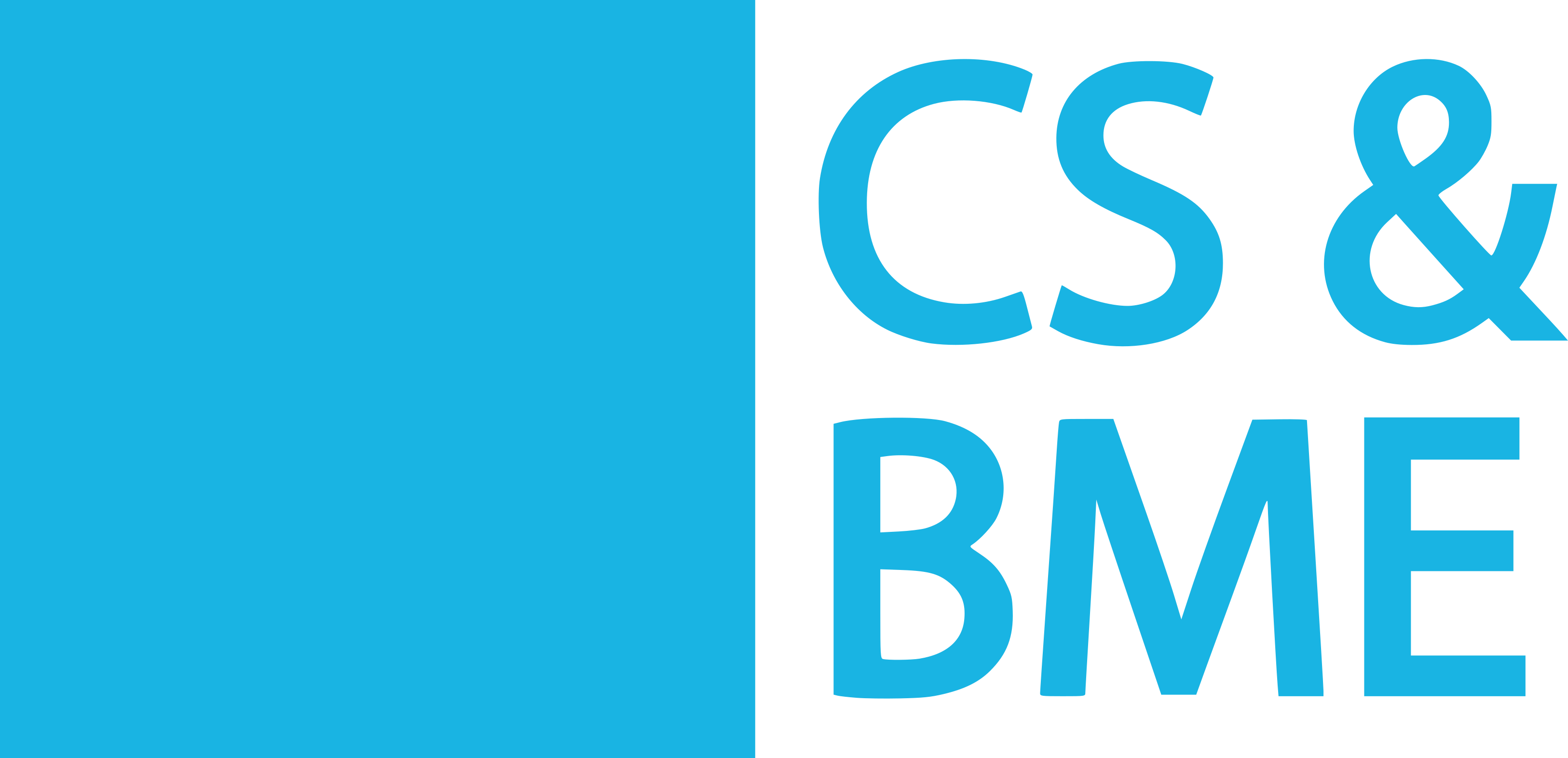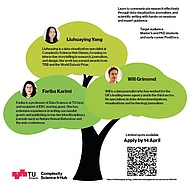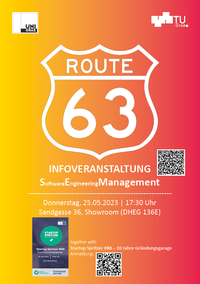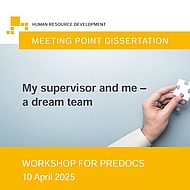
Meeting Point Dissertation Workshop „My supervisor and me – a dream team”
April 10th, 2025 | 09:00 - 17:00
Location: Campus Neue Technik, Krone Center, Room „MARS“
Language: English
Registration: andrea.hoeller@tugraz.at
Your supervisor can be a great resource for your PhD journey, so make the most of it! You can (and should) actively shape your supervision process and promote a successful working relationship. In this workshop you will explore practical tools and strategies for clearly communicating your goals and dealing with unexpected challenges. Learn how to seek valuable feedback, reflect on roles and responsibilities and gain a better understanding of the supervision process.
Further details on the workshop can be found in the flyer or on TU4U

Monthly Writing Session for Mid-Level Staff
The mid-level staff speakers from the CSBME faculty invite you to their monthly writing sessions - a dedicated space for focused and productive work.
Next Session: April 11th, 2025 | 9 am - 12 pm
Location: IFEG042, Inffeldgasse 16a, EG
Contact: Kerstin Lenk, Bettina Koenighofer, Markus Oberndorfer
We meet in a quiet conference room, creating an atmosphere conducive to deep concentration. Whether you're working on a paper, a proposal, or your dissertation, join us for uninterrupted writing time in a supportive environment.
The term refers to faculty members, researchers, and staff at an intermediate career stage, including:
- PhD students
- Postdocs
- Assistant Professors
- Associate Professors (under the previous habilitation scheme)
- Ao.Univ. Professors
- Staff scientists
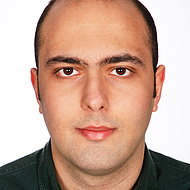
Talk: "Privacy-preserving runtime verification" by Mahyar Karimi
April 16th, 2025 | 9:00
Location: IFEG042
Organizer: ISEC
In this talk Mahyar Karimi introduces a novel protocol for privacy-preserving runtime verification, enabling third-party monitoring of systems against formal specifications without revealing sensitive system data or the specification itself, by leveraging and enhancing cryptographic techniques such as two-party computation.

Talk: "Repurposing drug delivery systems for diagnostics" by Simon Matoori
April 22nd, 2025 | 15:00
Location: BMTEG138 (HS BMT)
Organizer: CSBME
Simon Matoori (Faculté de Pharmacie, Université de Montréal, Montréal, Canada) will demonstrate how established drug delivery systems can be repurposed for diagnostic applications. He will present innovative approaches such as enzyme-loaded vesicles for lactate measurement in whole blood and pH-sensitive hydrogels for monitoring chronic wounds.
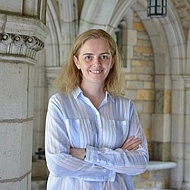
Talk: "Realizing Leibniz's Dream - Automating Legal Reasoning" by Ružica Piskač
April 22nd, 2025 | 9:00
Location: IFEG042
Organizer: ISEC
In this talk Ružica Piskač discusses how formal methods and Large Language Models can be used to realize Leibniz’s centuries-old vision of automating legal reasoning, by aligning advanced computer science techniques with both code-based and case-based legal challenges.
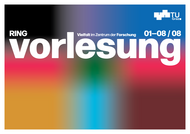
Lecture series: "Diversity at the centre of research"
March - June, 2025
Location: TU Graz
Registration: ringvorlesung.diversitaet@tugraz.at
Organizer: Equity, Youth, Care Unit
Accompanying seminar: Christine Wächter
Scientists from all seven faculties at TU Graz will once again offer exciting insights into their current research as part of this public lecture series from March to June 2025. They will vividly demonstrate how they address diversity and gain added value for their research. The seven lectures and the final discussion are aimed at TU Graz's internal and external public as well as students from all disciplines.
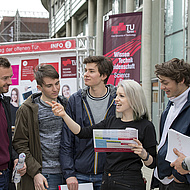
Open Day TU Graz
April 24th, 2025 | 09:00 - 16:00
Location: Inffeldgasse Campus
We invite you to come to our Open Day on Thursday, 24 April 2025, from 9 a.m. to 4 p.m. on the Inffeldgasse campus in Graz. Our faculty will once again be organising a number of interactive stations and is looking forward to welcoming many visitors!

Grazer Linuxtage 2025
April 25th & 26th, 2025
Location: Inffeldgasse Campus
Grazer Linuxtage is an event centred around free software and open hardware platforms. The Graz Linuxtage have been organised at TU Graz since 2019. We try to raise public awareness of the importance of these topics. We cover topics such as graphics editing with GIMP or Inkscape, photo management with Darktable, free tools for encrypted communication such as Matrix, cryptocurrencies such as Bitcoin, experiments with the Raspberry Pi and free operating systems such as Linux or FreeBSD.
All information about the programme and the Call for Participation can be found here.
Invitation to mini-course: "Data Storytelling: Visualization, Journalism, and Scientific Communication"
April 28 - 30, 2025
Speaker: Will Grimond, Liuhuaying Yang, Fariba Karimi
Target group: Master and PhD students
Organizer: Fariba Karimi (Institute of Human-Centred Computing)
Language: English
Day 1: Data visualization (morning lectures + practicals afternoon) Liuhuaying Yang (Complexity Science Hub)
Day 2: Data journalism (morning lectures + practicals afternoon) Will Grimond (RADAR, CSH)
Day 3: Scientific writing + communications (lectures + practicals) Fariba Karimi (TU Graz) and Will Grimond

Career Planning for Predocs – what are my further career moves?
April 28th & 29th, 2025 | 09:00 - 17:00
Location: Campus Neue Technik, Krone Center, Room „MARS“
Language: English
The “Career Planning – what are my further career moves?” workshops targeted at predocs are offered by Human Resource Development and support you in the reflection and analysis of your unique abilities and interests which are critical in determining the right career path. Based on this, you develop plans and strategies for your further career and identify resources that are supportive for your next career steps in or outside academia. Registration via e-mail to andrea.hoeller@tugraz.at (limited number of participants).

Career Planning for Postdocs – what are my further career moves?
April 30th, 2025 | 09:00 - 17:00
Location: Campus Neue Technik, Krone Center, Room „MARS“
Language: English
The “Career Planning – what are my further career moves?” workshops targeted at postdocs are offered by Human Resource Development and support you in the reflection and analysis of your unique abilities and interests which are critical in determining the right career path. Based on this, you develop plans and strategies for your further career and identify resources that are supportive for your next career steps in or outside academia. Registration via e-mail to andrea.hoeller@tugraz.at (limited number of participants).
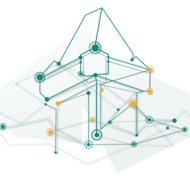
STS Conference Graz 2025
May 5th - 7th, 2025
Location: Hotel Weitzer
Language: English
The 23rd Annual STS Conference Graz 2025 „Critical Issues in Science, Technology and Society Studies“ is the joint Annual Conference of the Science Technology and Society Unit of the Institute of Human-Centred Computing of Graz University of Technology, the Interdisciplinary Research Centre for Technology, Work and Culture (IFZ) and the Institute for Advanced Studies of Science, Technology and Society (IAS-STS). Elena Esposito, Kean Birch and Harald Rohracher will attend as keynote speakers. Register now!
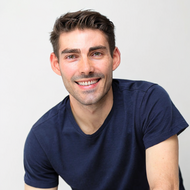
Talk: "Design and Effects of Human-Centered AI-based Writing Systems for Education" by Thiemo Wambsganss
May 14th, 2025 | 11:00
Location: DH Showroom
Organizer: HCC
In his talk, Thiemo Wambsganss will present his research at the intersection of Human-Computer Interaction, Natural Language Processing and Educational Technology on interactive writing assistants. In particular, he will present two projects: 1) his research on argumentation writing support systems for students to learn argumentation skills at scale with adaptive feedback and 2) his recent studies on conversational writing systems for reflective writing skills.
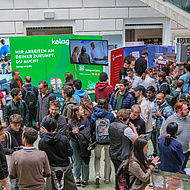
TECONOMY Graz: The largest careers fair at TU Graz
May 15th, 2025 | 09:00 - 16:00
Location: Campus Alte Technik
Whether technology or science - students and graduates in these fields will find a wide range of career opportunities here. Almost 100 market-leading top companies will inform you in a pleasant and professional atmosphere about entry opportunities in their companies.
International Student Congress 2025
May 28th - 31st, 2025
Location: Medical University of Graz
Organizer: International Student Congress
Target Group: BME students
The International Student Congress (ISC) takes place annually at the Medical University of Graz. The congress provides a platform for students with a background in medicine, pharmacology, natural sciences, nursing science, and students with technical training. A relaxed atmosphere provides students with many opportunities to exchange, connect and acquire a variety of significant hard and soft skills.
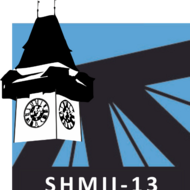
13th International Conference on
Structural Health Monitoring of Intelligent Infrastructure
September 1st - 5th, 2025
Location: Graz
The 13th edition of the International Conference on Structural Health Monitoring of Intelligent Infrastructure of the Society for Civil Structural Health Monitoring (SCSHM, formerly ISHMII) will provide a platform for international scientists, engineers, enterprisers, researchers, experts of public agencies, infrastructure owners and technical associations to discuss recent advances in structural health monitoring (SHM) of intelligent infrastructure and to explore the potential for international cooperation.
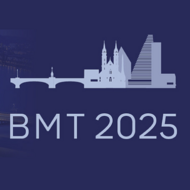
Joint Conference of the Swiss (SSBE), Austrian (ÖGBMT) and German (VDE DGBMT) Societies for Biomedical Engineering
September 9th - 11th, 2025
Location: Muttenz/Basel CH
The Austrian, German and Swiss Societies for Biomedical Engineering cordially invite you to the BMT2025. This three-day conference offers deep insights into recent developments in biomedical engineering and provides a platform for scientific exchange. More information about the event and the abstract submission: https://bmt2025.ch/
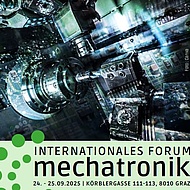
Internationales Forum Mechatronik 2025
September 24th - 25th, 2025
Location: Körblergasse 111-113, 8010 Graz
The 17th edition of the congress focuses on the topic area ‘Innovating Tomorrow - Erfolgsfaktor Mechatronik’. The event invites mechatronics professionals to present and discuss discussion of innovations from industry and research, to initiate new partnerships and and to increase the dynamics of innovation in the German-speaking economic area.

Multicultural Appetizers for your Lunch Break
April 9, 2025, 12 pm – 1 pm
Location: Campus Inffeldgasse, Inffeldgasse 11, HS FSI 2
Topic: „G’schichten aus dem Welcome Center: Interkulturelle Kommunikation an der TU Graz“ (in German)
Target group: TU Graz staff
Organizer: International Office – Welcome Center
Registration via: LimeSurvey
With a selection of thematic "appetisers", we want to address intercultural topics, jointly develop strategies for action and raise awareness in international encounters. Additionally, these lunch time meetings are a great opportunity to get to know the international community at TU Graz and network with colleagues while enjoying some lunch snacks. The lunch-series takes place once a month. Each event can be joined individually.
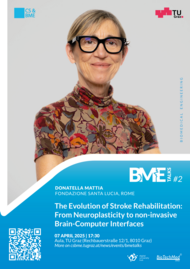
BME-Talk #2: "The evolution of stroke rehabilitation: from neuroplasticity to non invasive Brain Computer Interfaces" by Donatella Mattia
Speaker: Donatella Mattia (Fondazione Santa Lucia, IRCCS, Rome)
April 7th, 2025 | 5:30 pm
Aula, TU Graz
This public talk by Donatella Mattia is intended to provide the audience with an overview on the state of art of the non-invasive BCIs currently under investigation in the field of neurorehabilitation after stroke; open issues to translate BCIs from the laboratory to the clinical scenario will be also discussed.
openIGTE: Vorstellung aktueller Projekte und Lehrveranstaltungen am IGTE
April 2nd, 2025 | 16:00
Location: HS i1
Organizer: IGTE (Institute of Fundamentals and Theory in Electrical Engineering)
Information evening about research and teaching at IGTE with a lab tour and a cosy get-together on 2 April 2025 from 16:00 in HS i1.
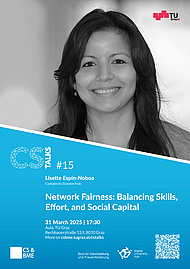
CS-Talk #15: "Network Fairness: Balancing Skills, Effort, and Social Capital"
Speaker: Lisette Espín-Noboa (Complexity Science Hub & Central European University)
March 31st, 2025 | 5:30 pm
Aula, TU Graz
Lisette Espín-Noboa’s work lies at the intersection of Computational Social Science, Network Science, and Artificial Intelligence, with a strong focus on advancing the UN Sustainable Development Goals (SDGs). In her talk, she will explore Network Fairness, examining how social connections shape opportunities and give rise to ethical dilemmas.
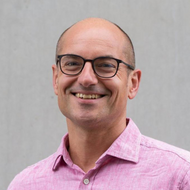
Talk: "Human Augmentation – Understanding, Playing, Learning" by Stephan Lukosch
March 21, 2025 | 11 am
Location: Franz Leberl-Seminarraum Inffeldgasse 16/2.Stock (Raumnr: 082)
Speaker: Stephan Lukosch
Organizer: IVC
On March 21, 2025, Professor Stephan Lukosch will discuss the potential of human augmentation, exploring how technology can enhance human senses, motor skills, and cognitive abilities. The talk will present current research projects on understanding, playing, and learning with augmented capabilities, as well as future challenges in the field.

Multicultural Appetizers for your Lunch Break
March 19, 2025 12 pm – 1 pm
Location: International House, Lessingstraße 32, SR DG, top floor
Topic: „Don’t put people in boxes: Zum gefaehrlichen Umgang mit Stereotypen“ (in German)
Target group: TU Graz staff
Organizer: International Office – Welcome Center
Registration via: LimeSurvey
With a selection of thematic "appetisers", we want to address intercultural topics, jointly develop strategies for action and raise awareness in international encounters. Additionally, these lunch time meetings are a great opportunity to get to know the international community at TU Graz and network with colleagues while enjoying some lunch snacks. The lunch-series takes place once a month. Each event can be joined individually.
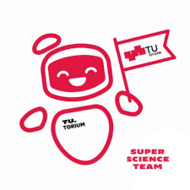
Get-Together: Super Science Team der TU Graz
March 18th, 2025 | 9:30-12:30 Uhr
Location: Petersgasse 16
Target Group: Employees of TU Graz
Organizer: Super Science Team - TU Graz
Are you involved in children's and youth activities at TU Graz? Then you are part of the TU Graz Super Science Team! At this information and networking event, you will receive news about all Super Science Team activities - from the MINKT lab, Fem in Tech activities, school tours, summer jobs for pupils, workshops, etc.
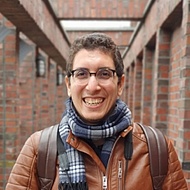
Talk: "Continual Model Adaptation: Methods & Applications" by Amr Gomaa
March 18, 2025 | 3 pm
Location: IAIK seminar room (IFEG042), Inffeldgasse 16a
Speaker: Amr Gomaa
Organizer: ISEC
Amr Gomaa will give a talk on "Continual Model Adaptation: Methods & Applications". He will explore how continual machine learning enhances adaptability in fields like automotive, robotics, and NLP - from personalized gesture recognition to self-improving LLM agents.
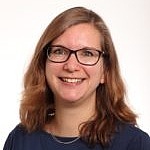
! Cancelled due to illness !
Sample lecture "Compartmental models"
by Habilitation candidate Kerstin Lenk
March 17th, 2025 | 1:15 pm - Cancelled due to illness
Location: BMTEG138 (HS BMT), Stremayrgasse 16
Organizer: CSBME
A public sample lecture in the presence of the commission is part of the habilitation procedure.

HabilTalk #7: Implementation Aspects of Lattice-based Cryptography
Sujoy Sinha Roy
11.03.2025 | 18:00
Showroom, Data House, 136E

Siemens Tech for Sustainability Campaign 2025
January 27, 2025 - March 10, 2025
Organizer: Siemens
In this open innovation campaign, participants from all over the world (students, researchers, inventors, ideators, startups,…) have the chance to work on real-world problems, exchange with industry-experts and help to create more sustainable industrial solutions with their ideas and skills. The three challenges:
- Trustworthy Circularity – Combining Trust and Transparency for the Evolution of Circular Economies
- SustAInability Navigator – Guiding your sustainability experience through AI
- Autonomous Eco-Campus – Scale data and systems towards sustainable universities

Colloquium: Machine Learning
February 27 - 28, 2025
Location: Showroom Data House, Sandgasse 36 EG (DHEG136E)
Organizer: Faculty CSBME
It is a pleasure to invite you to the colloquium for our Professorships at Graz University of Technology. There you can experience exciting speakers - you will see many sientific talks as well get insights into educational presentations.

Colloquium: Human Computer Interfaces and Inclusive Technologies
February 24, 2025
Location: Showroom Data House, Sandgasse 36 EG (DHEG136E)
Organizer: Faculty CSBME
It is a pleasure to invite you to the colloquium for our Professorships at Graz University of Technology. There you can experience exciting speakers - you will see many sientific talks as well get insights into educational presentations.

Colloquium: Computational Medicine
February 10 - 14, 2025
Location: BMTEG138 (HS BMT) Stremayrgasse 16, Erdgeschoß
Organizer: Faculty CSBME
It is a pleasure to invite you to the colloquium for our Professorships at Graz University of Technology. This week you can experience exciting speakers - you will see many sientific talks as well get insights into educational presentations.

Colloquium: Medical Imaging
February 3 - 7, 2025
Location: Showroom Data House, Sandgasse 36 EG (DHEG136E)
Organizer: Faculty CSBME
It is a pleasure to invite you to the colloquium for our Professorships at Graz University of Technology. This week you can experience exciting speakers - you will see many sientific talks as well get insights into educational presentations.

Colloquium: Security & Privacy
February 3 - 7, 2025
Location: Showroom Data House, Sandgasse 36 EG (DHEG136E)
Organizer: Faculty CSBME
It is a pleasure to invite you to the colloquium for our Professorships at Graz University of Technology. This week you can experience exciting speakers - you will see many sientific talks as well get insights into educational presentations.
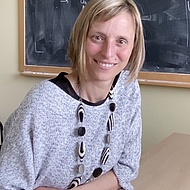
Talk: "Mathematical and Numerical Modelling of Neurodegenerative Diseases" by Paola F. Antonietti
January 29, 2025 | 4 pm
Location: Stremayrgasse 16/I, Seminar Room BMT 01046
Speaker: Paola F. Antonietti
Organizer: Institute of Biomechanics
In her talk, Paola F. Antonietti will deal with mathematical and numerical modelling of neurodegenerative diseases.
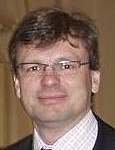
Sample lecture "Introduction to next generation sequencing technologies"
by Habilitation candidate Gerhard Thallinger
January 16th, 2025 | 2 pm
Location: HS BMT
Organizer: CSBME
A public sample lecture in the presence of the commission is part of the habilitation procedure.

HabilTalk #6: Transparency, Privacy, and Fairness in Recommender Systems
by Dominik Kowald
January 14th, 2025 | 6 pm
Showroom, Data House, 136E
At HabilTalk #6, Dominik Kowald will deal with the topic ‘Transparency, Privacy, and Fairness in Recommender Systems’.
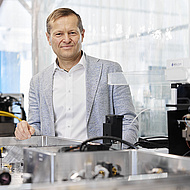
Nobel Lecture: "Sub-atomic motions probe human health - How basic science addresses grand challenges" by Ferenc Krausz
December 16th, 2024 | 10:00
Location: Petersgasse 16, 8010 Graz, lecture hall P1
Organizer: BioTechMed Graz
Nobel Laureate Prof. Ferenc Krausz will give the BioTechMed-Graz Nobel Lecture 2024 at Graz University of Technology. More Information here.

Faculty Day 2024 - 20 years CSBME
December 2nd, 2024 | 13:00 - 20:00
Location: Aula, TU Graz (Rechbauerstraße 12/1, 8010 Graz)
Organizer: Dean's Office CSBME
Our faculty is celebrating its 20th anniversary! In addition to research talks, awards and retrospectives, there will be a talk by Herbert Edelsbrunner, alumnus and award-winning computer scientist. Click here to register - limited number of participants!
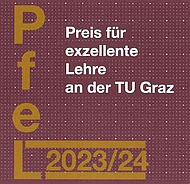
Award ceremony: Prizes for excellent teaching 2023/24
November 19th, 2024 | 17:00
Location: Aula, Rechbauerstraße 12
Organizer: TU Graz
On November 19, the ceremony on the occasion of the awarding of "Preis für exzellente Lehre" will take place at TU Graz. Courses/lecturers from our faculty that are in the final round:
- Knowledge Discoryer and Data Mining 2 (VU): Roman Kern, Maximilian Toller
- Logik und Berechenbarkeit (VO), Logik und Berechnebarkeit (KU): Bettina Könighofer, Stefan Pranger

KOMET 2024 Graz
November 14th - 17th, 2024
Location: TU Graz
Organizer: Förderverein der KOMET e.V.
KOMET - that stands for the conference of medical technology student councils ("Konferenz der Medizintechnikfachschaften"). KOMET represents the medical technology student councils from German-speaking countries and is therefore the largest representative of medical technology students. More about KOMET.
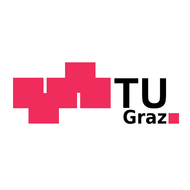
Hearing: Senior Scientist position at the institute 7100
November 14th, 2024 | 09:00 – 10:30
Location: IE02082 (ICG)
Organizer: TU Graz
Applicant: Clemens Arth, Priv.Doz. Dipl.-Ing. Dr.techn.
We would like to invite you to the public hearing for the "Senior Scientist position at Institute 7100".
Public part:
20 minutes presentation of the applicant from the current field of research
10 minutes questions from the audience
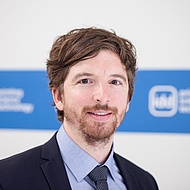
Talk: "Application of biosynthetic and biomimetic building blocks for
3D-biofabrication of vascularized tissue precursors" by Andreas Blaeser
November 11th, 2024 | 1 pm
Location: Stremayrgasse 16/III, Room BMT 03094
Speaker: Prof. Andreas Blaeser
Organizer: Institute of Biomechanics, TU Graz
Prof. Andreas Blaeser from TU Darmstadt presents innovative methods for the application of biosynthetic and biomimetic building blocks for the 3D biofabrication of vascularised tissue models. The lecture will highlight technologies such as electrospun nanofibres, TPS-printed microchannels and pre-vascularised organ-on-a-chip building blocks, which are intended to significantly improve nutrient transport in 3D-manufactured tissues.
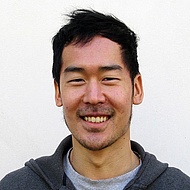
Talk: "On 2024 Nobel Prize in AI and Machine Learning " by Dr. Eddie Lee
November 7th, 2024 | 4 pm
Location: Showroom Datahouse, Sandgasse 36/EG (DHEG136E)
Speaker: Dr. Eddie Lee
Organizer: Institute of Interactive Systems and Data Science
Dr. Eddie Lee presents the scientific findings that led to the award of the 2024 Nobel Prize in Artificial Intelligence and Machine Learning. The talk provides an overview of the key innovations and their significance.
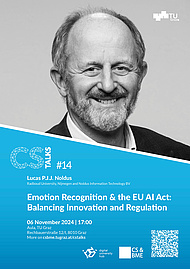
CS-Talk #14
Emotion Recognition and the EU AI Act: Balancing Innovation and Regulation
November 6th, 2024 | 17:00
Location: Aula, TU Graz (Rechbauerstraße 12/1, 8010 Graz)
Organizer: Dean's Office CSBME
No registration necessary!

Künstliche Intelligenz in ZT-Berufen: Chancen und Herausforderungen
November 5th, 2024 | 2 pm - 6 pm
Location: Aula der TU Graz
Organizer: Kammer der Ziviltechniker:innen, TU Graz
TU Graz and the Kammer der Ziviltechniker:innen invite you to the free information event “Artificial Intelligence and Civil Engineering Professions”. This event is intended to provide interested civil engineers and planners with information and initial practical orientation on the topic.
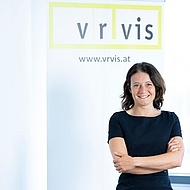
Talk: "Reflections from Working on Visualisation with Industry Partners - and ahead" by Dr. Johanna Schmidt
November 5th, 2024 | 3 pm
Location: CGV Seminar Room, Inffeldgasse 16c/II
Speaker: Dr. Johanna Schmidt (VRVIS Vienna)
Organizer: Institute of Computer Graphics and Knowledge Visualisation (CGV)
In this talk, Johanna Schmidt (VRVIS Vienna) delves into the pivotal role of Visual Analytics in the digitized manufacturing and energy sectors. She will discuss how data-driven approaches are enhancing decision-making and improving customer satisfaction, while addressing the ongoing challenges of managing Big Data.
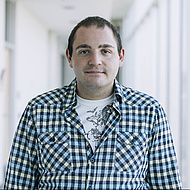
Talk: "Enhancing Educational Frontiers: Integrating GAI and Adaptive Learning Tools in Computing Education" by Michael Liut
November 4th, 2024 | 10:30
Location: Showroom Datahouse, Sandgasse 36/EG (DHEG136E)
Speaker: Dr. Michael Liut
Organizer: Institute of Interactive Systems and Data Science (ISDS)
In his talk Dr. Michael Liut will highlight how Generative AI (GAI) and adaptive learning tools are revolutionizing education in the field of computer science and enabling tailored learning support.

ITCS&Cloudflight Coding Contest
October 25th, 2024
Location: i3, Inffeldgasse 25/D
Organizer: Cloudflight
The Cloudflight Coding Contest is one of the biggest competitions of its kind. Each Spring and Autumn over 4,000 coders from all around the world simultaneously compete against each other in level-based coding games. Sign up and be part of it!
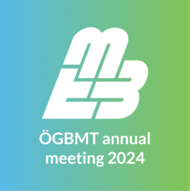
Annual meeting of the Austrian Society for Biomedical Engineering (ÖGBMT) 2024
October 24th - 25th, 2024
Location: TU Graz
Organizer: ÖGBMT
The conference offers a unique opportunity for renowned experts and young professionals to network.
- Papers: Submission Deadline 1st of June 2024
- Stefan Schuy Prize of the ÖGBMT: Submission Deadline 15th of May 2024
- Student competition "CSBME Award 2024" - Best PHD Thesis in BME: Submission Deadline 1st of June 2024
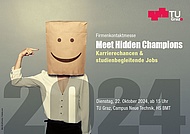
Firmenkontaktmesse: "Meet Hidden Champions"
October 22nd, 2024, 15:00 – 18:00
Location: TU Graz, Stremayrgasse 16, Hörsaal BMT
Organizer: Forschungs- & Technologie-Haus
"Pitching with a difference”: 20 start-ups and medium-sized growth companies from the Graz region, 10 of them ICT / software companies, will have 8 min. each for their presentation to students and young graduates. In total the companies have more than 300 jobs, paid internships and subjects for master theses to offer, right now and in the near future. Bonus: free CV photo shooting for participants - registration required! Event website (German only): https://www.tugraz.at/events/mhc/
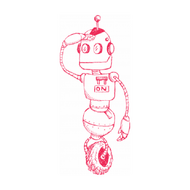
Bachelor@IAIK 2024/25
October 11th, 2024 | 12:00 - 13:30
Location: IAIK, Inffeldgasse 16a, foyer/ground floor
Organizer: IAIK Institute of Applied Information Processing and Communications
At the event IAIK presents open bachelor's thesis (and master's thesis) topics and awards prizes to excellent students.
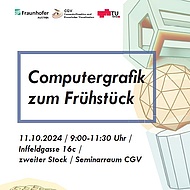
Computer graphics for breakfast
October 11th, 2024 | 9:00 - 11:30
Location: Inffeldgasse 16c, Seminarraum CGV, 2. Stock
Organizer: Institute of Computer Graphics and Knowledge Visualization (CGV)
The Institute of Computer Graphics and Knowledge Visualization (CGV) and Fraunhofer Austria invite you to breakfast at the start of the semester. Over coffee and waffles, you can have a relaxed chat about bachelor's and master's thesis topics.

Open Lab Night ICG
October 10th, 2024 | 17:00
Location: HS i11, ICG Inffeldgasse 16/2
Organizer: Institute of Computer Graphics and Vision (ICG)
The Institute of Computer Graphics and Vision (ICG) invites all to students to the Open Lab Night 24. More Information.
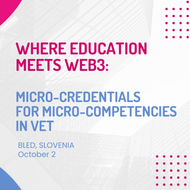
Conference: Where Education Meets Web3:Micro-credentials for Micro-competencies in VET
October 2nd 2024
Location: Bled, Slovenia
Organizer: Digital Innovation Hub DATATRUST
This event will explore the transformative impact of Web3 technology on higher education, with a special focus on micro-credentials, compliance with upcoming European regulations, and strategic decision-making for educational institutions.
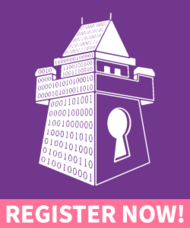
Graz Security Week
September 23rd - 27th, 2024
Location: TU Campus Inffeld, Inffeldgasse 25D, 8010 Graz
Organizer: IAIK
The Institute of Applied Information Processing and Communications is happy to announce that Security Week will take place again in September 2024!
This summer school targets graduate students interested in security and correctness aspects of computing devices.
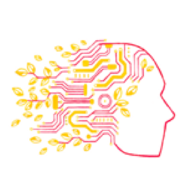
10th conference of the Gender Studies Association Austria
18-20 September 2024
Location: Graz
Organizer: Graz University of Technology (Office for Gender Equality and Equal Opportunity), University of Graz (The Coordination Centre for Gender Studies and Equal Opportunities)
From 18-20 September 2024, the 10th conference of the Gender Studies Association Austria (ÖGGF) will take place at the University of Graz & Graz University of Technology on the theme of "Humans - Machines - Environments". Register now!
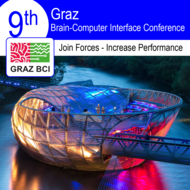
9th Graz Brain-Computer Interface Conference 2024
September 9th - 12th, 2024
Location: TU Graz
Organizer: BCI Society
The 9th Graz BCI Conference 2024 offers a platform to explore the latest developments and innovations in Brain-Computer Interface technology. More Information about the scientific program and registration can be found here.
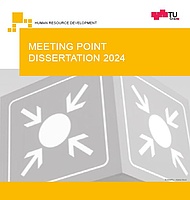
Meeting Point Dissertation - Information and discussion event
September 18th, 2024
Location: HS i9, Inffeldgasse 13, ground floor
Organizer: Personal-/Kompetenzentwicklung, TU Graz
Are you currently working on your PhD or about to start a doctoral project? The event “Meeting Point Dissertation" will provide useful information about the doctoral curriculum and the doctoral schools, as well as information about other offers and initiatives for PhD students. A PhD supervisor and former PhD students will share insights. Registration until 13 September via https://survey.tugraz.at/367931.

Hearings for the "Tenure-Track Professur im Forschungsbereich Human & Biotechnology"
September 2nd - 5th, 2024
Location: TU Graz
Organizer: TU Graz
We would like to invite you to the public hearing for the "Tenure-Track Professorship in the Area of Human & Biotechnology". All details can be found in the PDF.
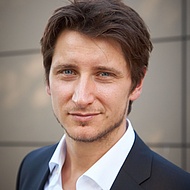
Talk: "On the Potential of Balanced Resonante-and-Fire Neurons for Sequence Learning Task" by Sebastian Otte
July 24th, 2024 | 10 am
Location: HS i12, Inffeldgasse 16b/UG
Speaker: Prof. Sebastian Otte
Organizer: Institut für Grundlagen der Informationsverarbeitung (IGI)
This talk will address the recently introduced balanced resonate-and-fire (BRF) neuron. While original resonate-and-fire (RF) neurons - proposed more than two decades ago - excel at capturing frequency patterns in temporal data within the time domain, they suffer from inherent limitations that prevents effective learning. By ensuring stability, BRF neurons mitigate these shortcomings, leading to more efficient learning and utilization of the underlying principles. BRF neurons show great potential for sequence learning and demonstrate their superiority over regular spiking neurons across various tasks in terms of task performance, robustness, spike efficiency, number of parameters, and training convergence speed.
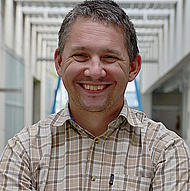
Sample lecture by Clemens Arth: "Outdoor Localization for Mobile AR - Methods and Challenges"
July 23th, 2024 | 10:00 am
Location: HS FSI 1 "Magna Steyr Hörsaal" (FSEG054)
Organizer: CSBME
A public sample lecture in the presence of the commission is part of the habilitation procedure.
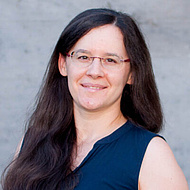
Sample lecture by Maria Eichlseder: "Collision-Finding Algorithms and the Birthday Paradox"
July 15th, 2024 | 11:00 am
Location: HS i11, Inffeldgasse 16b, 1.Kellergeschoß
Organizer: CSBME
A public sample lecture in the presence of the commission is part of the habilitation procedure.
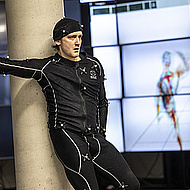
Dance performance in the HCC Lab
July 4th, 2024 | 8:00 pm
Location: HCC-Lab, Sandgasse 36
Organizer: Internationale Bühnenwerkstatt
Science & Technology: Eduardo Veas (ISDS, TU Graz)
Choreografie & Tanz: Tomaš Danielis
As part of Internationale Bühnenwerkstatt, the artist Tomaš Danielis will perform a dance performance in the new HCC Lab at TU Graz, which represents an artistic attempt to encounter new technologies.

Austrian Bioinformatics Workshop 2024
July 3rd, 2024 | 8:30 am - 5:30 pm
Location: MUG, Neue Stiftingstraße 6, 8010 Graz
Organizer: Medical University of Graz
The Center for Medical Research (ZMF) of the Medical University of Graz and the Austrian Bioinformatics Platform welcome you to Graz to participate in the 2024 Austrian Bioinformatics Workshop on July 3, 2024. The workshop will offer a number of keynote speakers, insightful talks selected from abstract submissions, workgroup discussions and social activity. We will also focus on national research infrastructure and facilities for life science data, including the new ELIXIR node Austria.
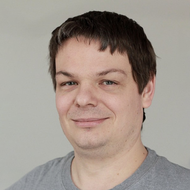
Talk: "Planning and Acting against Nature" by Lukas Chrpa
July 2nd, 2024 | 9 am
Location: HSi12 (Inffeldgasse 16B, 8010 Graz)
Speaker: Lukas Chrpa
Organizer: Institute of Software Technology (IST)
Planning and Acting in real-world environments usually have to deal with "acts of nature" that might change the state of the environment without the consent of the agent. In consequence, it might disrupt the plan and, in the worst case, cause damage or destruction to the agent. We formalise the problem of "planning against nature" and present techniques that for some subclasses of the problem can ensure the safety of the agent during its plan execution (under the given assumptions). The talk will be based on papers published on AAAI 2020, KR 2021 and ICAPS 2024.
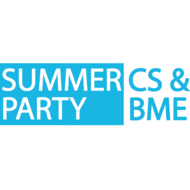
Registration: Summer Party 2024 for employees
July 2nd, 2024 | 7 pm
Location: Inffeldgasse 10
Organizer: CSBME
As part of the awarding of the silver diplomas and the HabilTalk by Yannic Maus, a faculty-wide summer party will take place afterwards. All employees of the Faculty of Computer Science and Biomedical Engineering are invited to attend. Please register here.
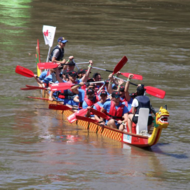
CSBME at the dragon boat race 2024
June 22nd, 2024 | 1:00 pm
Location: Seifenfabrik Graz
Organizer: Lions Club
Besides 4 other TU Graz boats, our faculty also competes with its own boat at this year's Dragon Boat University Cup. Watch us and cheer for us! Fun guaranteed!
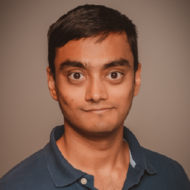
Talk: "A Modular Framework for Multi-Objective Decision-Making"
June 17th, 2024 | 1 pm
Location: IFEG042, Inffeldgasse 16a
Organizer: IAIK
The Institute of Applied Information Processing and Communications invites you to a talk by Kaushik Mallik, who will discuss a new modular framework for Multi-Objective Sequential Decision-Making based on auction-based planning. In this framework, each objective is fulfilled using a separate and independent policy.
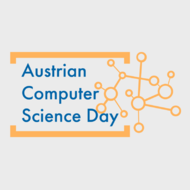
Austrian Computer Science Day 2024
June 14th, 2024
Location: University of Vienna
Organizer: University of Vienna
The Austrian Computer Science Day (ACSD) is an annual assembly to bring together computer scientists from Austria and beyond to improve visibility of the field and foster collaboration. The event features scientific presentations by established and early-stage researchers. Participation is free of charge. The topic in 2024 is "Networks in Artificial Intelligence".

Talk: "Model-based reconstruction for quantitative MRI using multi-echo radial FLASH."
June 11th, 2024 | 16 pm
Location: BMT03094, Stremayrgasse 16
Speaker: Xiaoqing Wang
Organizer: IBI (Institute of Biomedical Imaging)
The Institute of Biomedical Imaging invites you to a talk by Xiaoqing Wang from Boston Children's Hospital (Harvard Medical School), who will discuss new computational imaging techniques for quantitative MRI.
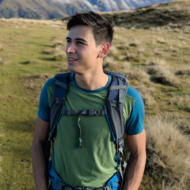
Talk: "Guiding Function Synthesis with Machine Learning"
June 6th, 2024 | 11 am
Location: IFEG052, Inffeldgasse 16a
Organizer: IAIK
The Institute of Applied Information Processing and Communications invites you to a talk by Julian Parsert, who will present methods how machine learning supports the search for solutions in the field of syntax-driven synthesis, including the use of Monte Carlo tree search and large language models (LLMs).
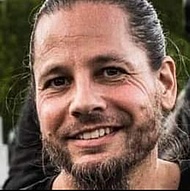
Talk "Sampling and reconstructing point clouds" by Stefan Ohrhallinger
May 28th, 2024 | 15 pm
Organizer: CGV
Curve and surface reconstruction from unstructured points is a key issue in computer graphics and vision, challenged by artifacts like noise and missing data. This talk by Stefan Ohrhallinger (TU Wien) will explore the necessary input requirements for successful reconstruction and methods to best approximate the initial surface from point samples.

Lange Nacht der Forschung 2024
May 24th, 2024
Location: Campus Inffeldgasse
Organizer: BMBWF
With over 2,800 stations, guided tours, workshops, lectures, live presentations and experiments to participate in and discover, the Long Night of Research offers something for everyone. TU Graz is also part of the Austria-wide science event in 2024 and invites all curious people to the Inffeldgasse to numerous stations.
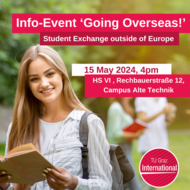
Infoevent: Going Overseas!
May 15th, 2024, 4:00 PM – 5:30 PM
Location: Alte Technik Campus
Organizer: International Office
Would you like to spend time abroad outside Europe or in the UK in the summer semester 2025 or the following academic year 2025/2026? Come to the info event for the ISEP and OverSEAs programmes on 15 May 2024!
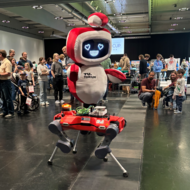
RoboCupJunior Austrian Open
May 9th - 10th, 2024
Hall A of Messe Graz
Organizer: TU Graz
The 16. RoboCupJunior Austrian Open, which took place last Thursday and Friday at the Messe Graz with TU Graz as host, was featured on the ORF program "Steiermark heute".

Mechanically Induced Martensitic Transformation: A Thermodynamically Consistent Multiscale Approach
April 18th, 2024 | 16:30
Place: Lecture Hall H “Ulrich Santner” (NTEG230E), Kopernikusgasse 24, 8010 Graz
Organizer: Institute of Biomechanics
Eduardo De Souza Neto (School of Civil Engineering, Swansea University, UK
A modelling approach to mechanically induced martensitic transformation in metallic alloys is described whereby the external energy required to complete the transformation of the metastable austenite phase into martensite is taken as a primary constitutive parameter at the lower (single crystal) scale. In this context, a computational homogenisation procedure is used to predict the corresponding macro-scale transformation surface in stress space as well the finite strain elastoplastic behaviour of the associated polycrystal. Refinements of the basic crystal-scale model are also discussed, which allow finer details of the macro-scale stress-strain behaviour to be captured more accurately.
Computer grafics for breakfast
March 8th, 2024
Place: Inffeldgasse 16C/2, Seminarraum CGV
Organizer: Institute CGV
Get your bachelor/master topic, Seminars, Projects or VWA for breakfast. An empty belly doesn't like to study! Become part of our team in the field of computer graphics.
We have prepared a collection of topic presentation videos and slides. The topics are taken out of current research activities of the institute.
Grazer Linuxtage
April 05th / 06th, 2024 | 9 am
Place: TU Graz, Campus Inffeldgasse
Organizer: Grazer Linuxtage
The Graz Linux Days are an annual conference on the topics of free software, open source and free hardware platforms. On two days at the end of the Easter holidays, you can expect workshops with interactive elements on Fridays and presentations and information stands on Saturdays. The presentations will last 25 or 45 minutes, including a short Q&A session. At the information stands, communities or companies will present their projects and there will be an opportunity for discussion. Food trucks in the public area will provide refreshments and childcare will be provided by professional educators.
The Graz Linux Days are looking for contributions on topics ranging from beginner to advanced level - more Information.
Volunteers are also needed for the event - interested in helping?

Colloquium Computer Science
February 26th 2024, time: 10 - 12 am and 1 - 4 pm
Place: Showroom Data House, Sandgasse 36 EG (DHEG136E)
Organizer: Faculty CSBME
It is a pleasure to invite you to the colloquium for our Professorships at Graz University of Technology.
The public part will be a scientific talk and a discussion with the audience.

Colloquium Foundations of Computer Science
February 12th to 16th 2024, time: 9 am to 4 pm
Place: Showroom Data House, Sandgasse 36 EG (DHEG136E)
Organizer: Faculty CSBME
It is a pleasure to invite you to the colloquium for our Professorships at Graz University of Technology.
The public part will be a scientific talk and a discussion with the audience.
Efficient and Generic Microarchitectural Hash-Function Recovery
February 12th, 2024 | 3 - 4 pm
Place: ifeg042
Organizer: IAIK
Website of Lukas Gerlach
Bio:
Lukas Gerlach is a PhD student at CISPA Helmholtz Center for Information Security microarchitecture and systems security at the reasearch group of Michael Schwarz. He received his Bachelor's degree in Computer Science from Saarland University. Lukas work focuses on various topics ranging from novel architectures such as RISC-V over automated reverse engineering of CPUs to Rowhammer attacks. He is a passionate CTF player focussing on exploition and cryptography for the saarsec team.
Abstract:
Modern CPUs use a variety of undocumented microarchitectural hash functions to efficiently distribute data within microarchitectural structures such as caches. A wellknown function is the cache slice function that distributes cache lines to the slice of the last-level cache. Knowing these functions considerally improves microarchitectural attacks, such as Prime+Probe or Rowhammer. However, while several such linear functions have been reverse-engineered, there is no generic and automated approach for reverse-engineering nonlinear functions, which are common with modern CPUs.
In this presentation, we introduce a generic approach for automatically reverse-engineering a wide range of microarchtictural hash functions. Our approach combines techniques initially used for logic-gate minimization and from computer algebra to infer the hash functions based on input-output pairs observed via side channels.
With our framework, we infer 3 previously unknown non-linear hash functions on both AMD and Intel CPUs, including the new Alder Lake hybrid-CPU architecture. We verify our approach by reproducing knwon hash functions and evaluating side-channel attacks that rely on these functions, resulting in success rates above 97,65%. We stress the need to design such functions with both performance and security in mind and discuss alternative designs that can be used in the future CPUs.

Call for Papers: Humans - Machines - Environment
10th (Bi)Annual Conference of the Austrian Society for Gender Studies (ÖGGF)
September 18 - 20, 2024
Place: TU Graz & Uni Graz
Organizer: TU Graz & Uni Graz
Participation is free of charge
More information
Submissions of papers are welcome until February 15th.
(Early career) scientists working in all disciplines are invited to address a highly topical question: How have the far-reaching bio- and information-technology developments in recent decades transformed the division of labour in society and gender hierarchies? Topics such as the role of gender in technology, the interaction between humans and machines or biases in artificial intelligence will be addressed.
New Techniques for Efficient Isogeny-based Encryption Protocols
February 8th, 2024 | 1:30 - 2:30 pm
Place: IFEG042
Abstract:
Isogeny-based cryptography is known for its low bandwidth requiremenets, which often come at the cost of slower computations. SIDH, one of the most well-known isogeny-based key exchanges, and the only one submitted to the NIST standardisation process, was broken in 2022 in a series of three breakthrough papers. The attack relies on isogenies between abelian varieties (a generalisation of elliptic curves to higher dimensions), and it leads to a complete key recovery within seconds.
In this talk, we discuss two approaches to obtaining secure protocols that could, eventually, replace SIDH. The first approach involves modifying the SIDH protocol to includesimple but effective countermeasures against all known attacks. The technique is based on restricting the set of potential isogenies, so that less information about the secret isogeny (in the form of torsion images) need to be revealed.
The second approach is based on the development os a new PKE, which we call FESTA. The attacks on SIDH rely on higher-dimesional isogenies to make some computations, previously believed to be hard, extremly efficient. In FESTA, we use the same techniques constructively: we build a trapdoor function where the inversion operation consists of recovering an SIDH secret key. From the trapdoor, it is then simple to obtain an IND-CCA PKE through standard transformations.
Bio:
Andrea Basso is a postdoctoral researcher at the University of Bristol, where he focusses on developing new isogeny-based protocols, with a particular interest in advanced functionalities such a non-interactive key exchanges and obvious pseudorandom functions. He received his PhD from the University of Birmingham, and he will soon join IBM Research Zurich as a postdoctoral researcher.
Graz Center for Machine Learning
GraML Conference
February 8th, 2024 | 9 am - 5 pm
Place: Aula Alte Technik, Rechbauerstraße 12, 8010 Graz
Organizer: Graz Center for Machine Learning
Registration
The goal of this conference is to provide insights into research of GraML partners and to provide a
networking opportunity between industry and academia in topics on machine learning and AI.

Colloquium Human Computer Interaction
February 5th to 9th 2024, time: 9 am to 4 pm
Place: Showroom Data House, Sandgasse 36 EG (DHEG136E)
Organizer: Faculty CSBME
It is a pleasure to invite you to the colloquium for our Professorships at Graz University of Technology.
The public part will be a scientific talk and a discussion with the audience.
Open Science meets AI: Implications for research processes and academic hiring decisions
January 31st, 2024 | 3 - 5 pm
Place: IDea_Lab, Leechgasse 34, 8010 Graz
Organizer: Graz Open Science Initiative
Registration
More information
With contributions from different experts including Dr. Anne Gärtner (TU Dresden), rector Prof. Horst Bischof (TU Graz), vice rector Prof. Joachim Reidl (Uni Graz), Prof. Jana Lasser (RWTH Aachen) and Dr. Tony Ross-Hellauer (TU Graz)
A Modular and Flexible Library for Reinforcement Learning
January 24th, 2024 | 9 - 10 am
Place: IFEG042
Speaker: Prof. Nestor Arana-Arexolaleiba - (Robotics and Automation Research Group, Mondragon University)
Bio: Nestor Arana-Arexolaleiba (PhD CNRS-LAAS - Toulous-France - 2002) is a researcher at the Robotics and Automation Research Group at Mondragon Unibertsitatea in Basque Country. He was a guest researcher at Aalborg University in Denmark from 2018 to 2019. His research focuses on collaborative robotics, machine learning and image processing for suitainable manufacturing and remanufacturing. He has a keen interest in human-robot. He has two patents and 50+ publications.
Nestor also teaches in the Robotics and Automation Master program, which covers ROS, Robotics AI-based Control and Mobile Robotics. He also participates in seminars on Collaborative Robots and Image Processing for companies in the context of the Basque Digital Innovation Hub.
Abstract: skrl is an open-source modular library for reinforcement learning written in Python. It is designed with a focus on readability, simplicity and transpareny of algorithm implementions. In addition to supporting environments that use the traditional OpenAI Gym interface, skrl allows loading, configuring and operating NVIDIA Isaac Gym environments. This enables the parallel training of several agents with adjustable scopes, which may or may not share resources, in the same execution. The library is built on top of PyTorch and JAX and it is highly modular and flexible.
More information
Source Code
Keywords: Deep Learning, Reinforcement Learning, Open Source Software

Thomas Schneider
"Recent Advances in Cryptography and Privacy Engineering"
January 15th, 2024, | 4 pm
Place: SR DHEG045 (Data House)
Organizer: Institute IAIK
Abstract:
Secure two-party computation allows two parties to securely compute a function on their respective private inputs. It allows to preserve privacy in applications that involve a client and a single server, and in settings where private data is outsourced to two non-colluding servers. In this talk, I will give an overview on recent advances in the area of secure two-party computation. In particular, I will focus on the setting with semi-honest parties, which allows to construct the most efficient protocols. I will summarize three recent research results from the ENCRYPTO group: First, circuit synthesis and secure evaluation of circuits should be considered together to not leak private information when evaluating malformed circuits with popular instantiations of Yao's garbled circuits protocol (JoC'23). In the area of secret-sharing based protocols, ABY2.0 (USENIX Security’21) allows highly efficient secure evaluation of Boolean circuits with multi-input AND gates and vector products, and FLUTE (IEEE S&P’23) extends these results to multi-input lookup tables. Among many other applications, these protocols substantially improve efficiency of privacy-preserving machine learning.
Short Bio:
Thomas Schneider is full professor for Cryptography and Privacy Engineering in the Department of Computer Science at Technical University of Darmstadt, Germany. Before, he was independent research group leader at TU Darmstadt (2012-2018), did a PhD in IT Security at Ruhr-University Bochum (2008- 2011), and wrote his Master thesis during a research internship at Nokia Bell Labs, NJ, USA (2007). His research focuses on privacy, cryptographic protocols, applied cryptography, and computer security. He heads the Cryptography and Privacy Engineering Group (ENCRYPTO), whose mission is to demonstrate that privacy can be efficiently protected in real-world applications. For this, his group combines applied cryptography and algorithm engineering to develop cryptographic protocols and tools for protecting sensitive data and algorithms. For his research on cryptography and privacy engineering, he was awarded with an ERC Starting Grant 2019 and an ERC Consolidator Grant 2023.
More details

Sample lecture "Modular Arithmetic Techniques"
Habilitation candidate Sujoy Sinha Roy
December 18th, 2023 | 9 am
Place: Showroom Data House (Sandgasse 36 EG)
Organizer: Institute ISDS

Sebastian Tschiatschek
"Imitation Learning and Value Alignment Under Mismatch and Constraints"
December 12th, 2023 | 12 pm
Place: IFEG042, Inffeldgasse 16a
Organizer: Institute IAIK
Abstract:
Reinforcement learning has been successfully used for training AI agents when given clearly defined reward signals. However, reinforcement learning can suffer from high sample complexity and is challenging to use in settings in which the reward signal is hard to specify, e.g., for training personal agents that should maximize a human-defined reward function. We investigate imitation learning and reinforcement learning from human feedback which allows us to avoid the specification of a reward function and can drastically reduce sample complexity. Inspired by real-world applications, we particularly study settings in which there is a mismatch between the human providing demonstrations or feedback and the learning AI agent, e.g., in terms of observations, capabilities, or constraints. Our insights emphasize the need for adaptation of the human and the AI agent to achieve the best alignment regarding the human's goals. Furthermore, we propose practical algorithms to perform this adaptation and sample efficient approaches for learning about rewards and constraints.

BioTechMed-Graz
Science Breakfast
December 6th, 2023 | 8:30 am - 10 am
Place: Uni Graz, RESOWI-Zentrum, SZ 15.21
Organizer: BioTechMed-Graz
Registration until December 4th, 2023
Michaela Krenn from the Working Group for Equal Opportunity at the Graz University of Technology, social worker, gender and diversity counsellor, bullying and conflict counselling, systemic coaching will give a lecture on the topic “Coming too close means going too far! Sexual Harassment and gender-based violence – What can we do?".

Sample lecture "Introduction to Distributed Graph Algorithms"
Habilitation candidate Yannic Maus
December 6th, 2023 | 11:30 am
Place: i11
Organizer: Institute IST

RDM Month December
Legal and ethical aspects of research data
December 07th, 2023 | 9 am - 11 am
Place: Fachbibliothek Inffeld TU Graz (Inffeldgasse 10)
Organizer: Research Data Management
This event will introduce and deal with legal aspects of digital objects necessitating data management planning. There are requirements of research results to meet privacy, confidentiality and cultural considerations. Next to a demonstration of the TU Graz DMP tool you will hear details about legal bases for digital objects created or managed during the research process featuring talks by several legal experts.
Due to limited places - Registration is requested

Book presentation
"Medical Devices and In Vitro Diagnostics: Requirements in Europe"
November 27th, 2023 | 6 pm
Place: Aula, Alte Technik
Organizer: Institute HCE
A standard work for biomedical engineers: the latest book published by Springer Nature Verlag provides a comprehensive overview of all relevant regulatory information and requirements for developers, manufacturers and distributors of medical devices and in vitro diagnostics in Europe.
The book "Medical Devices and In Vitro Diagnostics" offers a good balance of expert knowledge, empirical values and tried and tested methods. It is aimed at medical technology companies, experts in development, production and quality assurance, as well as students and graduates of technology and medicine who are preparing for a career in medical technology.

Colloquium Multi-sensor Perception
November 21th, 2023 | 11 am
Place: Sandgasse 36, DHEG054
Organizer: Faculty CSBME

Open Day for ESB-Lab
November 23th, 2023 | 2 pm - 6 pm
Place: Inffeldgasse 33
Organizer: Institute IAIK
Registration: laborleitung.ebs@tugraz.at

Manfred Klaffenböck
"Visualization Recommendation Demystified: Navigating the Multiverse of Data Visualization Guidance"
November 24th, 2024 | 11 am
Place: SR CGV, Inffeldgasse 16c/II
Organizer: Institute CGV
ABSTRACT:
Visualization Recommendation (VisRec) has emerged as a prominent and dynamic area of research, drawing substantial attention from scholars and practitioners alike. While recent studies have prominently explored the application of machine learning and artificial intelligence to VisRec, it is imperative to recognize that VisRec encompasses a multifaceted challenge. Beyond the 'how' it can be applied, it necessitates an understanding of the fundamental 'what' and 'why' behind its application. This talk seeks to provide a holistic perspective on visualization recommendation and automated decision-making. We integrate concepts from diverse problem domains, including visual parameter space exploration, visual guidance, established decision-making theories, and other relevant fields. By amalgamating these diverse streams of knowledge, our presentation will illustrate how Human-Computer Interaction can be conceptualized as a two-way communication process according to Shannon's communication model. We use this insight as a basis to explore how (semi-)automated knowledge assistance processes emulate human communication behaviors. Our findings will shed light on the practicality and simplicity of VisRec. We will demonstrate that, in many instances, VisRec can be applied in an uncomplicated manner by leveraging existing knowledge, challenging the notion of complexity often associated with it. Ultimately, we will encourage the audience to view the entire VisRec process from a multiverse perspective, fostering a deeper understanding of its potential and practical applicability.
BIO:
Manfred Klaffenboeck is a doctoral candidate at TU Wien's Institute for Visual Computing and Human-Centered Technology in Vienna, Austria. He earned a Magister degree in Movie and Media Science from the University of Vienna in 2013, supervised by Rainer M. Köppl, followed by a BSc in Computer Science in 2016 and an MSc in Media Informatics in 2018, both under Torsten Möller. Since 2018, he has been working towards his Ph.D. at TU Wien's Computer Graphics Research Unit under the supervision of Michael Wimmer. His research integrates computer graphics, computer vision, data visualization, and media analysis, with a current focus on semi-automated multiverse analysis leveraging (visual) parameter space exploration, visual analytics, and knowledge assistance. He is a certified adult education trainer and teaches first aid and EMT training for the Austrian Red Cross. He further teaches rhetoric and presentation skills and extends his knowledge in this area to academia by teaching computer graphics and visualization classes at a university level. Manfred is happily married and the proud father of four children whom he cherishes and devotes his spare time to. His commitment to his family and research work reflects his steadfast dedication to both personal and professional endeavours

Talk: Prof. Jan Faigl
"Autonomous Navigation of Ground Vehicles in Subterranean and Field Environments"
November 14th, 2023 | 9:30 am
Place: Seminarrum IGI (IC01074)
Organizer: Institute IST
Abstract:
In the talk, selected autonomous navigation solutions developed in the Computational Robotics Laboratory will be presented. The lab is a part of the Artificial Intelligence Center and Center for Robotics and Autonomous Systems at the Czech Technical University in Prague, Czechia. Within the lab, we address robotic information gathering with ground robotic platforms such as multi-legged and wheeled platforms. The talk focuses on deployments in subterranean terrains and field environments where relying on a global navigation satellite system is impossible. The talk will present results from autonomous system deployment motivated by the DARPA Subterranean Challenge (SubT) and the achievements of the CTU-CRAS-NORLAB team. Furthermore, recent deployments in data collection scenarios for communication signal propagation will be presented. Finally, results on autonomous navigation using geometry-based terrain assessment will be shown for a vehicle from 300 kg to 3000 kg weight category.

DigiKomm 2023 in Vienna
Keynote: Fariba Karimi
"Structural marginality in social networks and algorithms"
November 08th - 10th, 2023
Place: University of Vienna | Department of Communication
Organizer: University of Vienna
More information and registration
(Non-)Binarity in Binary Structures – The Digital Communication of Identity and Diversity
At the joint Annual Conference of the DGPuK-Divisions "Digital Communication" and “Media, Public Spheres and Gender” our new university professor Fariba Karima will be giving a keynote "Structural marginality in social networks and algorithms"

„Meet Hidden Champions“
Young ICT Companies Recruiting Event
October 24th, 2023, | 3 pm to 6 pm
Place: Hörsaal BMT, Stremayrgasse 16
“Pitching with a difference”: 22 start-ups and medium-sized growth companies from the Graz region, 11 of them ICT companies, will have 8 min. each for their presentation to students and young graduates. In total the companies have more than 350 jobs, paid internships and subjects for master theses to offer, right now and in the near future. Bonus: free CV photo shooting for participants - registration required! Event website (German only)

"Physikalische Gespräche" on "AI in Research and Teaching"
with Ass.-Prof. Christopher Albert and Rector Horst Bischof
October 19th, 2023 | 6 pm
Place: HS P1, Petersgasse 16

Talk: Prof. B. Emek Abali
"Multiphysics Computation of Electrified Tissue"
November 07th, 2023 | 3:30 pm - 5:00 pm
Place: SE 01046'
Organizer: Institute BIOM
Electrically induced tissue damage is a coupled phenomenon in multiphysics. Conducting electricity produces heat and this increases the temperature. Electromagnetism, thermomechanics, and damage modeling creates a set of coupled and nonlinear field equations, by solving them with the aid of the finite element method, we compute a realistic example where the tissue absorbs the electric energy, converts to heat, and gets burnt due to the excessive temperature increase.

Cloudflight Coding Contest
October 20th, 2023, | 3 pm to 7 pm
Place: Hörsaal i12, Inffeldgasse 16b
At the contest there is the possibility to do either a SW Coding Challenge or an AI Challenge.
You can compete alone or in teams (up to 3 people).
Registration

Talk: Dr. Anne Canteaut
"Propagation of Subspaces in Primitives with Monomial Sboxes"
October 30th, 2023 | 4 pm
Place: IFEG042
Abstract:
Motivated by progress in the field of zero-knowledge proofs, so-called Arithmetization-Oriented (AO) symmetric primitives have started to appear in the literature, such as MiMC, Poseidon or Rescue. Due to the design constraints implied by this setting, these algorithms are defined using simple operations over large (possibly prime) fields. In particular, many rely on simple low-degree monomials for their non-linear layers.
In this work, we show that the structure of the material injected in each round (be it subkeys in a block cipher or round constants in a public permutation) could allow a specific pattern, whereby a well-defined affine space is mapped to another by the round function, and then to another, etc. Such chains of one-dimensional subspaces always exist over 2 rounds, and they can be extended to an arbitrary number of rounds provided that the round-constants are well chosen.
As a consequence, for several ciphers like Rescue, or a variant of AES with a monomial Sbox, there exist some round-key sequences for which the cipher has an abnormally high differential uniformity, exceeding the size of the Sbox alphabet.
Well-known security arguments, in particular based on the wide trail strategy, have been reused in the AO setting by many designers.
Unfortunately, our results show their limits. To illustrate this, we present two new primitives (a tweakable block cipher and a permutation-based hash function) that are built using state-of-the-art security arguments, but which are actually deeply flawed.

Vladimir Bozovic and Veljko Milutinov
from the University of Montenegro visit TU Graz
November 9th, 2024, | 2:15 pm
Place: HS FSI 1 "Magna Steyr Hörsaal" (FSEG054), Inffeldgasse 11
Organizer: Institute ISDS
Vladimir Bozovic, Rector of the University of Montenegro (UoM)
Vladimir Bozovic is the Rector of the UoM, a matematician with Ph.D. from the Florida Atlantic University in Boca Raton, Florida, USA. He has received some of the greatests local and international awards for his research results.
Abstract:
His presentation gives an overview of the University of Montenegro (UoM) historical perspectives and current missions. UoM is the only state-owned university of Montenegro and unifies all aspects of interest for the highest education: From social studies and humanities, over mathematics and sciences, all the way to engineering and informatics. In its social and cultural missions, it is dedicated to modern studies that both widen the horisons of students and deepen their professional knowledge (e.g., in the past few years, the UoM or the related manifestations were visited by 4 different Nobel Laureates who shared their wisdom with the students, of which two delivered repeated lectures years appart: Dan Shechtman and Kostya Novoselov). In its engineering and scientific missions, especially at its international PhD program, it enrolls students from a number of countries in the region, and some from EU countries, too, due to its constant struggle for the highest levels of professional development (e.g., in the domain of VLSI processor-on-a-chip-design and related AI problems: two gigantic USA companies are leading the world markets, and at both companies, the current Vice Presidents are an alumnis and a former director of computing at UoM and an expert of Montenegrin descent: Ranko Scepanovic and Milivoje Aleksic. Some of the past or current students at TU Graz do come from Montenegro or are from the Montenegrin diaspora.
Veljko Milutinovic, Adjunct Professor of the University of Montenegro
He received his PhD from the University of Belgrade, has been on faculty positions the USA, at Purdue University and Indiana University, and is credited for the DARPAs first GaAs (Gallium Arsendie) microprocessor at 200MHz (about a decade before mainstream) and the DARPAs first GaAs Systolic Array with 4096 CPUs. We was also long time member oft he board of Academia Europaea)
Abstract:
His presentation, possibly followed by an on-site or an on-line mini-course or a full-blown course on DataFlow Programming, analyses the essence of DataFlow SuperComputing, defines its advantages and sheds light on the related programming model. The stress is on issues of interest for General Engineering. The DataFlow paradigm, compared to the ControlFlow paradigm, offers: (a) Speedups of at least 10x to 100x and sometimes much more (depends on the algorithmic characteristics of the most essential loops and the spatial/temporal characteristics of the Big Data Streem, etc.), (b) Potentials for a better precision (depends on the characteristics of the optimizing compiler and the operating system, etc.), (c) Power reduction of at least 10x (depends on the clock speed and the internal architecture, etc.), and (d) Size reduction of well over 10x (depends on the chip implementation and the packaging technology, etc.). The bigger the data, and the higher the reusability of individual data items (which is typical of ML), the higher the benefits of the dataflow paradigm over the control flow paradigm. However, the programming paradigm is different, and has to be mastered. The ongoing research of the speaker has been highly influenced by four different Nobel Laureates: (a) from Richard Feynman it has been learned that future computing paradigms will be successful only if the amount of data communications is minimized; (b) from Ilya Prigogine it has been learned that the entropy of a computing system could be minimized if spatial and temporal data get decoupled; (c) from Daniel Kahneman it has been learned that the system software should offer options related to approximate computing; and (d) from Tim Hunt it has been learned that the system software should be able to trade latency for precision.

Sample lecture "Introduction to (social) network analysis"
Habilitation candidate Jana Lasser
October 13th, 2023 | 1 - 3 pm
Place: HS i6 (MD01180F)
Abstract:
Networks are models to represent entities (also called "nodes") and the relationships between them. Classic examples of networks are power grids that are composed of entities that produce and consume electricity and are connected by wires, or social networks that are composed of individuals and their relationships. In the first part of this lecture, I will introduce different types of networks and network structures with examples from the realm of social systems. In the second part, I will introduce a number of network measures such as the node degree, and approaches to analyse the structure of networks such as community detection.

Bachelor@IAIK 2023/24
October 13th, 2023 | 12 am
Place: IAIK, Inffeldgasse 16a, ground floor
We present our new open bachelor's thesis topics and award prizes to excellent students who contributed to scientific publications this past year. If you're interested in joining us for your bachelor's thesis in security, this is the best way to get an impression of our topics as well as how a bachelor's thesis at IAIK works: You'll hear about our research areas and current hot topics, our Bachelor@IAIK program where you can work on your thesis together with your fellow students in one of our offices if you like, and maybe you'll get to know your supervisor while chatting along.
The event will also be the kick-off lecture in Introduction to Scientific Working (ISW) where you will be able to choose your preferred topic!
We are looking forward to meeting you!
Your future in Biomedical Engineering
October 16th, 2023 | 3 pm
Click to watch
The Online Info Event of the Faculty of CSBME of TU Graz is an Event where lecturers and students show how diverse, varied and exciting studies in the fields of Biomedical Engineering are and what potential a Master at TU Graz has. At the event, the focal points, special features and unique selling points of the studies will be presented. In addition, the professional opportunities that arise from studying in the field of BME will be conveyed. A special focus will be put on the specialization possibilities/majors. The event is mainly aimed at international bachelor students from the current TU Graz target countries who are considering doing a Master's Programme at TU Graz.
Your future in Computer Science
October 16th, 2023 | 2 pm
Click to watch
The Online Info Event of the Faculty of CSBME of TU Graz is an Event where lecturers and students show how diverse, varied and exciting studies in the fields of Computer Science are and what potential a Master at TU Graz has. At the event, the focal points, special features and unique selling points of the studies will be presented. In addition, the professional opportunities that arise from studying in the field of CS will be conveyed. A special focus will be put on the specialization possibilities/majors. The event is mainly aimed at international bachelor students from the current TU Graz target countries who are considering doing a Master's Programme at TU Graz.

Talk: Janusz Będkowski
"Affordable open hardware, open-source mobile mapping system for all scenarios"
October 12th, 2023 | 9 am
Place: Seminarrum IST
Abstract:
This talk concerns recent status of an affordable open hardware, open-source mobile mapping system for mobile mapping applications. Recent experiments show that it can be efficiently used in many scenarios such as culture heritage, urban search and rescue, urban mapping, AGV (automated Guided Vehicle) navigation etc. The main idea was to develop portable mobile mapping system that can be handheld, can be mounted on the bicycle, slaw motion vehicle etc. It provides trajectory and 3D map (point cloud) of traversed environment. The software stack is composed of lidar odometry and loop closure. It is possible to align multiple sessions into one reference frame. The project of city-level map building will be elaborated. Recently, challenging Urban Search and Rescue scenarios were performed, thus results with K9 will be shown. The movement of the dog is challenging and the expectations of the end users are far away from technology advancement, thus future research is addressed.

Waffles & Wireframes – Breakfast at the CGV
October 6th, 2023, | 9 - 11:30 am
Place: Seminar Room CGV ID02104, Inffeldgasse 16c/2
The Institute of Computer Graphics and Knowledge Visualisation & Fraunhofer Austria
are announcing
current topics for Bachelor and Master theses in the areas of
* Computer Graphics
* Extended Reality
* Geometry Processing
* Computer Aided Design
* Visual Analytics and Information Visualization
* Computer Vision Applications
The topics can be accessed (only from the TU Graz LAN/VPN) here.

Open Lab Night 2023
October 04th, 2023 | Start 6 pm
6 pm - Opening (HS i12)
6:30 pm - Live-Demos (ICG - Inffeldgasse 16/2)

CSS-Festival
October 05th, 2023 | 4 pm
Place: i9
WELCOME – from 4.00 P.M.
4.00 – 4.10 p.m. – Greetings from the Rectorates
4.10 – 4.20 p.m. – Introduction CSS Vision: Thalmann & Lex
4.20 – 4.25 p.m. - Introduction CSS-Team: Coordinator; CSBME; STV (student representative)
4.25 – 5.00 p.m. – Introduction of Specialisations with Students and their Master’s Thesis
GET-TOGETHER – from 5.00 P.M.
Get-Together with teachers and students

CS Talks #12
Title: Personalization for Human-AI Collaboration
Cristina Conati (University of British Columbia)
October 3rd, 2023, 5:00 pm
Aula Alte Technik

Colloquium Visual Computing
Information
Sep. 18 - 22 | Inffeldgasse 16b | HSi11

Martin Leucker
Formal Verification of Neural Networks?
September 19th, 2023 | 10 am
Place: IST Seminarraum (IC02062)
Short abstract:
Machine learning is a popular tool for building state of the art software systems. It is more and more used also in safety critical areas. This demands for verification techniques ensuring the safety and security of machine learning based solutions. However, in this presentation, we argue that the popularity of machine learning comes from the fact that no formal specification exists which renders traditional verification in appropriate. Instead, validation is typically demanded and we present a recent technique that validates certain correctness properties for an underlying recurrent neural network: Property-directed verification of Recurrent Neural Networks.
Bio:
Martin Leucker is currently a professor at the University of Lübeck, Germany heading the Institute of Software Engineering and Programming Languages. He obtained his Ph. D. at the RWTH Aachen, Germany and afterwards, he worked as a Postdoc at the University of Philadelphia, USA and at the Uppsala University, Sweden. He pursued his habilitation at the TU München, Germany. He is the author of more than 100 peer reviewed conference and journal papers ranging over software engineering, formal methods and theoretical computer science.

Meeting Point Dissertation
September 22nd, 2023, | 9:30 am
Place: HS i9, Inffeldgasse 13, ground floor
Are you working on your PhD or about to start a doctoral project? Then we cordially invite you to join the information and discussion event "Meeting Point Dissertation". The event will provide useful information about the doctoral curriculum and the doctoral schools as well as information about other offers and initiatives for PhD students. A PhD supervisor and former PhD students will also share insights. Registration until 22 September via https://survey.tugraz.at/256274.

Mathieu Jan
Formal Hardware/Software Modeling for Timing Properties: from Safety to Security
July 11th, 2023, | 10 am
Place: IFEG042
Short abstract:
The emergence of open hardware initiatives, for instance, based on the RISC-V ISA, exposes more easily the exact behavior of hardware designs. They can then be analyzed and combined with application-level semantics to formally verify complex safety (and security) properties at the system level. In this talk, we first present an overview of the LEAF approach for verifying such timing-related properties. Then, we focus on the required formal model tailored to a specific property: the detection of Timing Anomalies (TA) within pipelines of processors. A TA is a counterintuitive timing behavior that can threaten Worst-Case Execution Time (WCET) analyses. We also report ongoing work to generate such pipeline formal models from RISC-V processors described in Chisel/FIRRTL. Finally, we conclude on current extensions to apply the LEAF approach to safety properties.
Bio:
Dr. Mathieu Jan obtained his engineering diploma in 2003 and got a Ph.D. in 2006 on data management for grid architectures from Univ. of Rennes 1 in an INRIA laboratory. He joined CEA LIST in 2007 as a full-time researcher. Since then, his main research interests are embedded systems and real-time systems. Senior expert at CEA LIST since 2014, he obtained a "Habilitation à Diriger des Recherches" (HDR) in 2016, and is a CEA Research Director since 2021. He spent the whole year 2019 as visiting scholar at the University of California, Berkeley (UCB) in the group of Prof. Edward Lee. Since 2020, Mathieu focuses on the hardware/software formal verification of embedded systems and is the Ph.D. director of several Ph.D. students in this area.

Stefano Vassanelli (M.D., Ph.D.)
Connecting brain and artificial neurons: where we are, challenges and opportunities
July 21st, 2023, | 1:15 pm
Place: HS i11 "SIEMENS Hörsaal" (ICK1002H)
Stefano Vassanelli (M.D., Ph.D.) is head of the NeuroChip laboratory and Professor of Physiology at the Department of Biomedical Sciences and Padua Neuroscience Center, University of Padova, Padova, Italy. He obtained his PhD in molecular biology and pathology at the University of Padova and worked as postdoctoral research scientist at the Oregon Graduate Institute of Science & Technology, Portland, Oregon and at the Max-Planck Institute for Biochemistry, Department Membrane and Neurophysics, Martinsried, Germany. His research activity at the crossroad of neuroscience, materials science and electronics focuses on neuroelectronic interfaces, brain-inspired devices, neurophysiology of brain microcircuits and neural computation.

Mandy MacLean
Pulmonary hypertension: estrogens and obesity
July 27th, 2023, | 3 pm
Place: BMT03094
Short abstract:
Pulmonary arterial hypertension (PAH) is most frequently observed in women. Sex hormones likely play a role in the development of PAH and we will discuss the roles of estrogens and estrogen metabolites. These are elevated in both male and female patients. Estrogen and 16-hydroxyestrogen metabolites have pathogenic effects in the lung, inducing pulmonary vascular remodelling and this may involve oxidative stress. Many PAH patients are obese and evidence suggests this impacts significantly on the pathogenesis of PAH partially through increased estrogen synthesisis.
Bio:
Mandy obtained her PhD in Pharmacology from the University of Edinburgh in 1985 and then spend a year in the USA and three years in Cambridge before moving to The University of Glasgow in 1989. Mandy joined The University of Strathclyde in 2019. Her research has focused on the role of serotonin in the development of pulmonary arterial hypertension (PAH). As more women get PAH than men, more recently her work has focused on sex effects and oestrogen metabolism in PAH. She has a BHF programme grant and won the 2017 Reynold Spector Award for Clinical Pharmacology from the American Society for Pharmacology and Experimental Therapeutics (ASPET). Other research awards include a Royal Society Wolfson Research Merit Award and a Royal Society Leverhulme Trust Senior Research Fellowship. She sits n numerous grant funding panels and is a trustee of The Academy of Medical Sciences and The Glasgow Children’s Hospital Charity.

Jean-Max Dutertre: "Review of laser and EM fault injection attacks into microcontrollers"
July 5th, 2023, | 2 pm
Place: IFEG042
Abstract: Microcontrollers storing valuable data or using security functions are vulnerable to fault injection attacks. Among the various types of faults, instruction skips induced at runtime proved to be effective against identification routines or encryption algorithms. Until recently, most research papers assessed a fault model that consists in a single instruction skip, i.e. the ability to prevent one chosen instruction in a program from being executed. This seminar reports experimental results that extend the complexity and versatility of the instruction-skip fault model. It shows how using laser or EM fault injection makes it possible to induce several consecutive instructions skips or to skip instructions from different parts of a program. It focuses on results obtained on custom test circuits and general purpose microcontrollers at different technology nodes. An analysis of the involved injection mechanisms is also provided.
Short bio: Prof. Jean-Max Dutertre received the M.S. and Ph. D. degrees in microelectronics from the University of Science of Montpellier, France, in 1998 and 2002, respectively. He is head of the Secured Architectures and Systems (SAS) research department of Mines Saint-Etienne from Institut Mines-Télécom, which is part of a joint R&D team with the CEA Leti. His research interests are with hardware attacks techniques and the design of the related counter-measures (either hardware or software). He is studying fault injection attacks of secure integrated circuits for 15 years

„Treffpunkt Habil“ – Information and discussion event
July 4th, 2023, | 3 pm - 5 pm
Place: HS FSI 1, Inffeldgasse 11, ground floor
Are you currently working on your habilitation or playing with the idea of starting a habilitation project? On 4 July an information event for habilitation candidates and scientists who are considering a habilitation project will take place under the title “Treffpunkt Habil”. The event, organised by the Human Resource Development, covers a broad range of topics from the importance of habilitation, the habilitation procedure, related recommendations and support services, the submission procedure to the personal experiences of an already habilitated person. In addition, there will be enough time to discuss your questions and exchange ideas with like-minded people.
Registration until 29 June

Summer Party 2023
Summer Party 2023
for CSBME Members
July 4th, 2023 | 6:00 pm
Place: Mensa Inffeldgasse
Our Summer Party will take place again this year - there will be a barbecue buffet and drinks.
All emplyees of the Faculty of Computer Science and Biomedical Engineering are invited.

DocDays 2023
July 4th, 2023 | 09:00 am
Place: Hörsaal HS BMT | Stremayrgasse 16
The DocDays are a one day internal conference for all PhD students (university assistants, project assistants, and self-sustained students) at the Doctoral Schools of Computer Science and Biomedical Engineering. Students will have the opportunity to present their research or research ideas, get feedback, network with their fellows, and get to know the faculty. The DocDays are a joint effort by the Committees of the Doctoral School of Computer Science and Biomedical Engineering.

Verena Biener (FH Coburg)
Mixed Reality for Mobile Knowledge Work
June 2nd, 2023 | 11 am
Place: Franz Leberl Seminarraum
Abstract:
Not least due to the Corona pandemic, mobile working is very widespread, especially among knowledge workers. However, in the home office, on public transportation, or in waiting rooms, the work environments and available mobile devices are often not optimal. Mixed reality has the potential to solve some such problems, for example by displaying multiple virtual screens of variable size that can make working easier.
Similarly, the work environment can be customized to the users preferences. In the course of my PhD, I am exploring the practicality of using virtual work environments over longer periods of time and in everyday situations. In addition, I evaluated different input and output modalities including the use of traditional devices such as mouse, keyboard and tablet combined with the possibilities offered by Mixed Reality, such as depth perception or eye-tracking.
Bio:
Verena Biener is a Ph.D. candidate in computer science at Coburg University in cooperation with the University of Bayreuth. She is advised by Professor Dr. Jens Grubert and Professor Dr. Jörg Müller. Her research is about using mixed reality for knowledge worker tasks in mobile settings. She evaluates different interaction techniques using common devices like touch screens as well as eye-tracking or spatially tracked devices, and she is also interested in the effects of using mixed reality for knowledge work in ecologically valid settings. Verena Biener received her bachelor’s degree in computer science from University of Tübingen, Germany and completed her M.S in computer science at University of Stuttgart, Germany.
Info session: Route 63
Route 63: elective course programme in cooperation with the University of Graz
May 25th, 2023 | 5:30 pm
Sandgasse 36, 8010 Graz
DHEG 136E (Showroom)
After that join the Startup Spritzer!
What is “Route 63”?
Two universities, one goal: The University of Graz and Graz University of Technology want to make their students fit for the professional world. To this end, they are alternately opening up their range of courses in the fields of economics, sociology, psychology and computer science with their cooperation called “Route 63” – named after the bus line connecting the two universities.
TU Graz students can take courses in business administration, sociology and psychology, giving them the tools, they need to set up companies or market software. If you are studying Software Engineering and Management you can use the elective course programme which includes Digital Entrepreneurship, Cognition and Behavior, Current Societies and Business Law to become a sought-after expert for socially explosive topics!
You can find further information in the Curriculum for the Master’s Degree Programme Software Engineering and Management in paragraph 12 (starting on page 30):
- Elective module O2: Digital Entrepreneurship
- Elective module P2: Cognition and Behaviour
- Elective module Q2: Current Socielties
- Elective module R2: Business Law

Competence Corner - Introduction to Conflict Management
April 13th, 2023, | 9 am - 17 pm
Place: Kopernikusgasse 24 | SR 3
Dealing with conflict is a normal part of working life. The point is not to avoid conflict, but to learn how to recognise potential conflict at an early stage and deal with it constructively so that it does not escalate. In this Competence Corner workshop, you will learn the basics of dealing with conflict and how to adapt your approach to the situation. The workshop is designed for university (project) assistants. Registration is open until 6 April at lisa-marie.epple@tugraz.at. This year's Competence Corner will focus on "Effective Collaboration". You will also have the opportunity to learn the rules for successful collaboration in international research teams in the workshop "Teamwork and Communication in Intercultural Teams" on 17 May.
Information

The Lunch Lottery
May 3rd - 9th, 2023, | 12:45 pm
Place: Mensa Rooftop
Between 3 and 9 May 2023, meet other employees working at TU Graz and get to know each other beyond the usual team boundaries. You will get to know (as yet) unknown colleagues and their respective fields of work, thus expanding your university network. Once you have registered, you will be paired up with others on one of the days of your choice. You will find out who you will be having lunch with at the Mensa Rooftop, to which TU Graz cordially invites you. Registration is possible from 3 to 22 April at survey.tugraz.at/786997. We also welcome registrations from employees who have already taken part in previous Lunch Lotteries. More information
Grazer Linuxtage
14. - 15. April 2023 | Campus Inffeldgasse 25/D
Our this year's call for participation is online!
Grazer Linuxtage is an annual event happening at TU Graz on topics related to free/open source software and open hardware platforms.
"Since 2019, the Graz Linuxtage have been held at TU Graz. We try to bring the importance of these topics into the public consciousness. We cover topics like graphics editing with GIMP or Inkscape, photo management with Darktable, free tools for encrypted communication like Matrix, cryptocurrencies like Bitcoin, experiments with the Raspberry Pi and free operating systems like Linux or FreeBSD. For this we offer workshops on Fri, 2023-04-14 afternoon and talks on Saturday, 2023-04-15. We also offer livestreams where you can follow the lectures.
Interested? Away from the audience, we welcome active help with smaller tasks.
Contribute/Help"

CS Talks #11
Title: Why maritime cyber security?
Kimberly Tam (University of Plymouth)
March 28th, 2023, 5:00 pm
Aula Alte Technik
Mateusz Pusz
High-level Abstractions, Safety, or Performance?
March 15th, 2023, | 5:30 pm
Place: HS i11 "SIEMENS Hörsaal" (ICK1002H)
Case study of a physical units library: how Modern C++ addresses this challenge and how it relates to similar solutions on Java or Python.
DMP Workshop @ CSBME
March 08th, 2023, | 2 - 3:30 pm
Place: Inffeldgasse 16b/1 | IC01074
DMP Workshop @ CSBME - data management plans and data respositories
The RDM team of TU Graz invites members and interested colleagues of the Faculty of Computer Science and Biomedical Engineering to a workshop on data management plans (DMP) and the use of our institutional data repository. DMPs are guidelines intended to help researchers to deal with data adequately enabling a subsequent use and preventing possible data loss while they are required for newly funded projects from FWF, EC and other funding agencies. Recommendations for public funded projects also include the use of data repositories. We will show how to use the TU Graz repository providing persistent identifiers to publish data related to project results in addition to scientific publications. We also give the opportunity, especially to PhD students to train and to create their own DMPs for their thesis, and will guide and give feedback to experienced researchers to their DMPs for future projects.
For registration please contact: c.jean-quartier@tugraz.at
Computergrafik
zum Frühstück
Waffles & Wireframes - Breakfast at the CGV
March 03rd, 2023, | 9:30 - 11:00 am
Place: Inffeldgasse 16c | second Floor | Seminarraum
Current topics for Bachelor and Master theses in the areas of
* Computer Graphics
* Extended Reality
* Geometry Processing
* Computer Aided Design
* Visual Analytics and Information Visualization
* Computer Vision Applications
The topics can be accessed (only from the TU Graz LAN/VPN) here.
Daniel Gruss
ERC Starting Grant Kickoff Event
Febuary 28th, 2023, | 5:00 pm
Place: Alte Technik, Aula
In 2022, Daniel Gruss from the Institut of Applied Information Processing and Communication at University of Technology Graz, received the renowned EU Founding Prize for research on energy-efficient IT security from the European Research Council. With his ERC Starting Grant, he is researching how energy effiviency in IT can be increased in the future without causing security gaps. As part of the Kickoff Event Daniel Gruss will present his project.
Colloquium Data Science
Information
February 13 - 16 | Inffeldgasse 18 EG | HSi1
Justus Piater
Making robots learn to perceive and act with understandings
Febuary 13th, 2023, | 4:00 pm
Place: Inffeldgasse 16b, ICO2062
"The titel of this talk is the motto of the Intelligent and Interactive Systems group at the Universitiy of Innsbruck. Our long-term objective is to improve abstraction, robustness, and ultimately explainability of robot perception and action. Motivated by shortcomings of current machine-learning methods, I will discuss examples of our recent work on learning visual relational concepts, extrapolation of learned movements beyond the training distribution, and learning of symbolic concepts and ruels from sensorimotor experience. As an added bonus, I will show how to train neutral networks of a thousand layers without skip connections, batch normalization, propout, or any other architectural tweaks, using our so-called batch-entropy regularization."
Joan Daemen:
On lightweight symmetric cryptography
Febuary 10th | 2 pm
Pleace: IFEG042 (IAIK seminar room)
Mathy Vanhoef:
Detecting Wi-Fi Networks Vulnerable to FragAttacks: Feasible, but also Ethnical?
Febuary 2nd | 1pm
Pleace: IFEG042 (IAIK seminar room)
Habil Talk #1
Peter Roth:
Visual Learing from and for Heterogeneous and Ambiguous Data
January 24th | 2:30 PM
Place: HSi7
The habilitation is the highest-ranking university examination in most Western European countrys, with which the teaching qualification is a scientific subject is determined as part of an academic examination procedure. Habilitations at the Department of Computer Science and Biomedical Engineering follow the habilitation process of TU Graz.
In September 2022 the Habilitation procedure from DI Dr.techn. Peter Roth with the scientific subject "Applied Computer Science" started.
Prof. Ruzica Piskac - Yale: Privacy-preserving Automated Reasoning
December 22 | 2 pm
Place: IFEG042 Inffeldgasse 16a, EG
Bugs in software and hardware can often to catastrophic consequences. There are various ways to improve software quality, formal verification being the most rigorous of all. In formal verification, the goal is to translate programs into formulas, and then automatically prove the correctness of these formulas. Formal methods offer a vast collection of techniques to analyze and verify these systems mathematically to ensure the correctness, robustness, and safety of software and hardware systems against a specification. Despite the significant success of formal method techniques, privacy requirements are not considered in their design.
In the last two decades, we have witnessed fascinating progress in the area of automated reasoning. Modern automated reasoning tools are now applied daily to tasks in program analysis, software engineering, hardware verification, and various other domains. The efficacy of such tools allows their application to even large-scale industrial codebases.
In this talk, we will present our work on adding a privacy-aware perspective to automated reasoning. When using automated reasoning tools, the implicit requirement is that the formula to be proved is public. We propose the concept of privacy-preserving formal reasoning. In our recent work on a zero-knowledge protocol for proving the unsatisfiability of Boolean formulas in propositional logic, we developed a highly efficient protocol for knowledge of a resolution proof of unsatisfiability. We encoded verification of the resolution proof using polynomial equivalence checking, which enabled us to use fast ZKP protocols for polynomial satisfiability.
Graz Security Week
September 26-30 | 16:00 | online
This fourth summer school of its kind targets graduate students interested in security and correctness aspects of computing devices.
Julian Parsert
Neural Termination Analysis
September 28th, 2022, | 9:00 am
Place: Inffeldgasse 16a, IFEG042
We introduce a novel approach to the automated termination analysis of computer programs: we train neural networks to behave as ranking functions. Ranking functions map program states to values that are bounded from below and decrease as the program runs. The existence of a ranking function proves that the program terminates. We learn ranking functions from execution traces by training a neural network so that its output decreases along the sampled executions; then, we use symbolic reasoning to formally verify that it generalises to all possible executions. We demonstrate that, thanks to the ability of neural networks to represent highly complex functions, our method succeeds over programs that are beyond the reach of state-of-the-art tools. This includes programs that use loop guards with disjunctions and programs that exhibit nonlinear behaviour.
Your Future in Computer Science / Biomedical Engineering
September 30 | 16:00 / 17:00 | online
Are you considering a master’s degree in Computer Science or Biomedical Engineering? Join our Online Info Session and listen to lecturers and students introducing our broad range of different programmes. We are also going to provide you with some information about studying in Graz as an International Student. Info: Computer Science 4pm. Info: Biomedical Engineering 5pm.
Massimo Marchiori:
The Joy of Data
September 30 | 4 pm | Inffeldgasse 13, 6 OG.
We live in a world full of data: data pervade our society and our world, and are increasingly considered like a precious commodity, the gold of our modern times.
In this talk we will take a trip into the world of data, and focus on a few novel research examples tackling significant data scenarios.
Starting from "classical" data sources like the Web we will go on with quite more unusual examples, touching on various intriguing aspects of our society (and beyond).
The talk will be expository in nature: no prior specialistic knowledge is required.
Waffles & Wireframes
Announcement of Topics for Bachelor and Master Theses in Winter Term 2022/23
October 5 | 9-12 a.m.
With the new semester coming up, the Institute of Computer Graphics and Knowledge Visualisation & Fraunhofer Austria are announcing current topics for Bachelor and Master theses in the areas of Computer Graphics, Geometry Processing and Visual Analytics.
• They have published the slides and videos on the topics, as offered from our supervisors.
• They will also host a live presentation with fresh waffles in the seminar room (Inffeldgasse 16c/II, SR CGV ID02104)
The topics can be accessed (only from the TU Graz LAN/VPN) here.
ICG:
OpenLabNight 2022
October 6th, 2022, | 6:00 pm
Place: HS i11 "SIEMENS Hörsaal" & Inffeldgasse 16, 2nd floor
For all students and those interested in research, there is OpenLabNight from the Institute of Computer Graphics and Vision on Thursday, October 6.
The event starts at 18:00 with information about project courses in HS i11. At 18:30 there will be pizza and drinks as well as live demos of current research.
Come join us and secure your scientific work!
Academic Advising for incoming students
We offer a special academic advising unit, given by Christian Gütl (CS studies) and Gerhard Sommer (BME). They will explain how things work in our department, and offer to discuss your personal learning agreement in order to achieve all scheduled ECTS credits.
Date, Place:
Academic Adving CS: September 23rd, 14:00; HS i12
Academic Advising BME: September 26th, 14:00; HS BMT (Stremayrgasse 16, EG)
Gunther Helms:
Membranes in MRI - overlooked, but not invisible
July 07th, 2022, | 4:00 pm
Place: Stremayrgasse 16, 3. Stock (BMT03094)
Gunther Helms, Senior lecturer at Lund University (Sweden) is visiting us due to the doctoral examination of Lukas Pirpamer. Helms talks about "Membranes in MRI - overlooked, but not invisible".
Maßnahmen zur Erhöhung des Frauenanteils an der Fakultät CSBME
July 13th, 2022, | 4-6 pm
Place: HS FSI 2 - Inffeldgasse 11
in German
Anna Napetschnig presents her Master Thesis “Frauen@TUG – Do IT! Successful approaches to improve the qualitative and quantitative situation of female students of computer science at Graz University of Technology” and we will discuss her recommendations.
In her Master thesis “Frauen@TUG – Do IT” Anna Napetschnig has developed a catalog of measures for the qualitative and quantitative improvement of the situation of female computer science students at the TU Graz. The first part of the thesis is an inventory of projects for the promotion of young female computer science students at Graz University of Technology and at comparable universities. The second part consists of qualitative and quantitative surveys of female TU Graz students on these measures. This results in a catalog of measures with individual recommendations for the TU Graz, which have the potential to increase the proportion of female computer science students and to reduce the drop out.
She won the Mind the Gap Diversity Award 2021.
You can watch her presentation >here<.
Verleihung Silberne Diplome Telematik
& Summer Party (internal)
July 05th, 2022, | 5:00 pm
Place: Inffeldgasse 10
► Registration required
In the course of the awarding of the Telematics silver diplomas, there will be a department-wide summer party afterwards. All employees of the Department of Computer Science and Biomedical Engineering are invited to attend. Please register here.
Oliver Deussen:
Visualizing Graph Structures
July 05th, 2022, | 1:00 pm
Place: SR CGV
Inevitably, the projection of most graph structures on two-dimensional screens will create errors and therefore visually wrong impressions. In the past, two types of methods have been developed to minimize projection errors and distribute them in a visually pleasing way. The first group of methods, force-directed layouts, interpret the links of a graph as physical springs, while stress-based methods minimize an energy function, which aims to map graph distances faithfully. A unified description of both method types allows to create optimal parameters for both and even to specify new, better methods for most graphs. The addition of vector-based constraints enable systems to render graphs with different layouts and under varying perspectives. Finally, I will show that deviating from all kinds of physical metaphors is a good idea to create even better projection methods.
Startup Spritzer #81
June 23th, 2022, | 5:00 pm
Place: Inffeldgasse 13, HS i9
► Registration required
This Startup Spritzer is all about startup offerings in Graz: As a young startup, you go through many stages towards success. If you are lucky, you don't have to go this way alone, but are supported by organizations like the Gründungsgarage, the Science Park or the entrepreneurship courses of the TU. Four startups report on their experiences with these programs and share their success stories. Afterwards, the aws will present its funding offers for young entrepreneurs.
CS Talks #9:
Eva Galperin: Who Deserves Cybersecurity?
June 07th, 2022, | 5:30 pm
Place: Aula Alte Technik
We're all in cybersecurity, but who is cybersecurity for and what does cybersecurity protect? This talk will discuss some of the failures and blind spots of cybersecurity as it stands and discusses the ways in which cybersecurity can be reimagined to protect the marginalized.
Tech talk:
DevOps Theory vs. Practice
June 01st, 2022, | 12:01 pm
Place: WebEx
There are a lot of simplified representations of DevOps, but practice shows that it is more difficult than that. Many tools need to mesh like gears, and humans have to interact with each other to provide functional applications to end users. This talk will show how DevOps can be implemented in a way that serves all stakeholders. Automation techniques like Continuous Integration and Continuous Delivery will be introduced, and it will be described how test automatization can be used to reach the goal of a full Continuous Deployment process.
Presenter: Alexander Kalchauer - Alexander is an alumni of TU Graz in Software Engineering and Management and also an alumni of the Catrobat project :logo:. He has worked for 8 years as a technical lead for Dr. Nagler & Company Austria. During this time he was a member of several large project teams working on market data, financial trade data and risk management for several national and international clients. Currently he is implementing DevOps processes for a large German investment company.
Carsten Baum:
Efficient Designated-Verifier Zero-Knowledge and Cheese Puns
May 19th, 2022, | 4:00 pm
Place: IFEG042
Zero knowledge proofs are an important building block in many cryptographic applications. Unfortunately, when the proof statements become very large, existing zero-knowledge proof systems easily reach their limits: either the computational overhead, the memory footprint, or the required bandwidth exceed levels that would be tolerable in practice.
In this talk, I present a designated-verifier zero-knowledge proof system for boolean and arithmetic circuits, called Mac’n’Cheese (CRYPTO 2021), with a focus on supporting large circuits. The work follows the commit-and-prove paradigm instantiated using information-theoretic MACs based on vector oblivious linear evaluation to achieve high efficiency. It additionally allows to optimize disjunctions, with a general OR transformation for proving the disjunction of m
statements that has communication complexity proportional to the longest statement. These disjunctions can further be nested, allowing efficient proofs about complex statements with many levels of disjunctions. Mac’n’Cheese can be made non-interactive (after a preprocessing phase) using the Fiat-Shamir transform.
Additionally, I will present two other recent results which built upon the Mac’n’Cheese proof system. First, I will discuss how to efficiently convert between different proof systems with an approach called Appenzeller2Brie (CCS 2021). Moreover, I will show that a protocol similar to Mac’n’Cheese can be constructed to permit proofs over rings modulo 2^k. This protocol, called QuarkSilver, is the first such protocol to natively work over these rings.
Tech talk:
Development of hand-gesture (camera based) apps (guest lecture by Huawei)
May 18th, 2022, | 12:00 am
Place: Webex
Huawei developers will showcase development of hand-gesture-controlled Android apps using Huawei's AI/ML based computer vision API (supporting also Google Android, React Native, and iOS) under consideration of test-driven development.
Presenters:
Chia Leung Ho: As a passionate Developer Advocate, Chia Leung Ho is committed to bring the developers community together and provide guidance to the next generation. He specializes in the area of HarmonyOS - Wearable application development, Digital Advertising and Android development using Huawei Mobile Services (HMS). Currently based in Huawei Düsseldorf (Germany) and supporting developers from all over Europe.
Muhammed Şimşek: After graduating as a Computer Engineer, Muhammed Şimşek started working at Huawei at the R&D Center in Istanbul. There he started working on big data analysis of telecommunications data, but quickly switched to working with Android to extend the reach of the Huawei Mobile Services (HMS). Currently he works at Huawei Netherlands and supports developers in Germany and the Benelux.
Note: There will be high-tech swags sponsored by Huawei!
You are cordially invited to this talk!
Arranged through Prof. Slany's Catrobat team, winner of the Huawei Best App Europe award 2020.
Nils Götzen:
EU Horizon Project – SimInSitu
May 16th, 2022, | 16:30 am
Place: BMT01046
SimInSitu is aiming to develop a sophisticated in-silico method to predict the short- and long-term behavior of in-situ tissue engineered heart valves by combing advanced tissue remodeling algorithms with a personalized virtual heart modelling approach. The method will be specifically developed to predict the complex transformation process of biodegradable heart valves from the initially synthetic scaffold into a fully remodeled & functional valve.
Jaan Raik:
HW-based monitoring and mitigation of cache SCAs
May 11th, 2022, | 9:00 am
Place: IFEG02
Tyge Tiessen:
A formal analysis of boomerang probabilities
April 29th, 2022, | 9:30 am
Place: IFEG042
In the past 20 years since their conception, boomerang attacks have become an important tool in the cryptanalysis of block ciphers. In the classical estimate of their success probability, assumptions are made about the independence of the underlying differential trails that are not well-founded. We underline the problems inherent in these independence assumptions by using them to prove that for any boomerang there exists a differential trail over the entire cipher with a higher probability than the boomerang.
We further provide a framework which allows us to formulate and prove rigorous statements about the probabilities involved in boomerang attacks without relying on independence assumptions of the trails.
Johanna Pirker @ 84th Vienna Children's Lecture
March 27th, 2022, | 11:00 am
What does a great game need?
The Vienna Children's Lectures at the Zoom Children's Museum give inquisitive children aged eight to twelve an insight into the world of science. This time, computer scientist Johanna Pirkner will talk about the various components of an exciting computer game in the lecture "Vom Spielen und Gamen" ("On Playing and Gaming") and will also address the ideas and suggestions of the young audience. Registration is required.
Information event on the Master's program Computational Social Systems
March 30th, 2022, | 05:00 pm | University of Graz, Universitätsstraße 15, HS 15.14
The English-language Master's program deals with new challenges and opportunities of digitalization. Digitalization generates and stores more and more data about our society and our behavior. The master's program trains experts who can derive valuable knowledge from these volumes of data using methods from computer science and specialist know-how and guarantee responsible use of this data. The CSS master's program places great emphasis on interdisciplinarity.
Virtual Open Lab Night 2022
Tuesday, March 8th, 2022, | 5:00 pm | online
Vision, Learning & Optimization
Thomas Pock and his team show how to solve challenging computer vision and image processing problems using variational methods and machine learning.
Mixed Reality
Denis Kalkofen and his team present novel approaches for mixed reality displays.
Learning & Recognition
Horst Bischof and his team present recent work on autonomous driving and recognition of human motions and activities.
Real-Time Graphics
Markus Steinberger and his team demonstrate real-time graphics, modeling and other 3D applications running in real time on the GPU.
Robotics and 3D
Friedrich Fraundorfer and his team show research results in the area of 3D computer vision and demonstrate the camera drones used the aerial vision lab.
Virtual Reality
Dieter Schmalstieg and his team show novel algorithms and display technologies for Virtual Reality.

The Formalization and Representation of Expert Knowledge with Visual Analytics to Improve Product Quality in Serial Manufacturing Processes
December 09th, 2021 | 11:00 pm | online
Advances in new technologies, such as the Internet of Things (IoT) and big data analytics are enabling a new generation of smart manufacturing processes. These technologies allow the efficient tracking of the quality of produced parts along every step in the manufacturing process.
Here, sophisticated measurement equipment forms interconnected IoT networks, where the “smartness” level depends to great extent on how organizations can leverage data-driven approaches to create value of resulting big datasets and to support human experts with their high-cognition analysis tasks. In this regard, Visual Analytics (VA) can help to integrate human experts into the visual exploration of IoT data by augmenting analytical reasoning capabilities together with model-supported and custom-designed visualization interfaces. Thus, in this thesis, we analyze the role of VA in serial manufacturing processes. Specifically, we aim to examine how such visualization approaches can be used to formalize and represent expert knowledge to make it readily accessible for the development of data-driven approaches, which show great potential in improving serial manufacturing processes. In doing so, we present results from four design study projects in collaboration with a German manufacturer of electric vehicles. Our results indicate that VA shows great potential in augmenting human analytical reasoning processes of knowledge-intensive tasks. Furthermore, we outline how features, models, and especially labels can be leveraged by organizations as explicit knowledge products to be shared among organizational members and leveraged to engage in sophisticated data-driven approaches.
About Joscha Eirich
Joscha Eirich holds two bachelor's and master's degrees in business administration and information systems from the University of Bamberg.
At the moment he is working on his PhD at BMW Group. His research activities focus on the integration of domain knowledge into machine learning pipelines as well as visual analytics for the analysis of large-scale IoT data from serial manufacturing processes.
tugraz.webex.com/tugraz/j.php
Thursday, Dec 09, 2021 11:00 am | 1 hour | (UTC+02:00) Amsterdam, Berlin, Bern, Rome, Stockholm, Vienna Meeting number: 2733 247 3401
Password: UJhxpqJ4M28
Join by video system
Dial 27332473401@tugraz.webex.com
You can also dial 62.109.219.4 and enter your meeting number.
Join by phone
+43-720-815221 Austria Toll
+44-20-3478-5289 United Kingdom Toll
Access code: 273 324 73401

Matchmaking Encryption
December 20th, 2021 | 12:00 -14:00 | webex
Join via the meeting link
Join with meeting ID:
Meeting ID (access code): 2733 968 8841 Meeting password: imNugMMt623
Daniele Venturi introduce a new form of encryption that we name matchmaking encryption (ME). Using ME, sender S and receiver R (each with its own attributes) can both specify policies the other party must satisfy in order for the message to be revealed. The main security guarantee is that of privacy-preserving policy matching: During decryption nothing is leaked beyond the fact that a match occurred/did not occur. ME opens up new ways of secretly communicating, and enables several new applications where both participants can specify fine-grained access policies to encrypted data. For instance, in social matchmaking, S can encrypt a file containing his/her personal details and specify a policy so that the file can be decrypted only by his/her ideal partner. On the other end, a receiver R will be able to decrypt the file only if S corresponds to his/her ideal partner defined through a policy. On the theoretical side, we define security for ME, as well as provide generic frameworks for constructing ME from functional encryption. These constructions need to face the technical challenge of simultaneously checking the policies chosen by S and R, to avoid any leakage. On the practical side, we construct an efficient identity-based scheme for equality policies, with provable security in the random oracle model under the standard BDH assumption. We implement and evaluate our scheme and provide experimental evidence that our construction is practical. We also apply identity-based ME to a concrete use case, in particular for creating an anonymous bulletin board over a Tor network.
Speaker: Daniele Venturi (Professor of Applied Mathematics, UC Santa Cruz)

SAFEST project - a Hardware Security network
November 22th, 2021 | 2:00 - 3:00 pm | IFEG042
In this talk, Prof. Pagliarini will introduce the SAFEST project and the opportunities for collaboration and staff exchanges between TU Graz and TalTech. SAFEST is a H2020 Twinning action, a type of project where partners are committed to cross-training each other on the complementary topics of (hardware) security and circuit design. In particular, Prof. Pagliarini's team provides expertise on the design of application specific integrated circuits (ASICs). The talk will also cover one successful collaboration between TalTech and TU Graz where a post-quantum crypto core named SABER was recently taped out in 65nm CMOS.

CSBME Faculty Day 2021
October 14th 2021, 13:30 - 18:00 CET, Aula "Alte Technik" and online
In addition to the Inaugural Lecture by David Garcia-Becerra, we will also host the Dean's List awards ceremony for the top students on our faculty and the presentation of the eponymous scholarship.
We are also pleased to have short research presentations by our career professors: Ursula Augsdörfer, Friedrich Fraundorfer, Elisabeth Lex, Viktoria Pammer-Schindler, Markus Steinberger, as well as Selina Wriessnegger.
A running buffet rounds off the Faculty Day.

Computer science education in Bavaria: reacting to the challenges of digitization
When: October 19th, 2021 from 17:00 - 18:00
Where: HS BE01, Steyrergasse 30, Ground Floor // Webex
Registration required!
The unstoppable digitization of all areas of life is changing our society sustainably and dramatically. School education must respond to this appropriately, i.e., on a broad front. This requires a carefully planned, long-term, evidence-based overall strategy designed for sustainability, which must touch (almost) all areas of school activity. In line with this universality of demands, an enormous diversity of terms used for informatics education is evident worldwide. We have identified over 40 relevant terms for this purpose. Equally diverse are the teaching contents offered in this area. The identification of competencies to be learned by students poses particular difficulties. There is very little preliminary research on this to date.
To master digital systems, our students need solid knowledge of their technical functioning and logical structure as well as competencies suitable for everyday use to apply digital tools effectively and efficiently. This foundation can only be learned in a dedicated subject of computer science. But all other school subjects must also respond to the challenges of digitization by adapting their learning objectives, learning methods and the media used accordingly. However, it is not easy to make such changes to an existing school system while it is still in operation. The greatest challenge here is the restructuring of pre- and in-service teacher education, both in computer science and in the didactics of all other subjects.
The German State of Bavaria already reacted to this challenge in 2000 with the introduction of a compulsory subject in computer science at its Gymnasien and Realschulen, which was significantly developed designed and supported by the author, i.a. in teacher education, curriculum work, and by writing textbooks. This was followed in 2019 by another major offensive by the state government, in which the existing compulsory subject of computer science was further expanded as well as newly introduced at main schools.
In this presentation, the basic concept of this subject will be presented, as well as some supporting activities such as teacher training. However, in the course of these activities, some persistent obstacles have also emerged that are very difficult to remove, Above all, the low enrollments in teacher training programs for computer science, as can be observed in almost all concerned countries. One possible reason for this could be found in the contradictory personal requirements of a teaching degree on the one hand and a computer science degree on the other.

International Days 2021
When: October 19th, 2021 - October 21st, 2021
Where: Webex
Have you been thinking about going abroad as part of your studies for some time now? Do you keep asking yourself the following questions: Where? When? For how long? What opportunities are there at all?
During the International Days at Graz University of Technology, there will be various opportunities to get information, ask open questions and network with students who are currently doing a semester abroad or are doing their exchange at Graz University of Technology.
Online consultation
have a look on Discord if we're online

Dean's Office
Inffeldgasse 10/II, 8010 Graz
Office Hours (on site)
Mon, Tue, Thu, Fri 09:00 - 12:00
Wed 10:00 - 11:00 and 14:00 - 16:00
We're closed on 17. and 18.4.25. Happy Easter Holidays!
